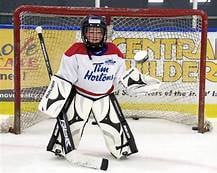
THE BEGINING: GOALIE PARENTING 101
It's 6:45 Saturday morning, any other Saturday you would still be in bed barely thinking of getting up. Not today, you
decided to register your child for hockey for the first time. As if that wasn't bad enough, the first thing the coach
asks as you walk into the room is "Who wants to be a goaltender??"... Your mouth drops and you see butterflies flying
out of your wallet as your child is the one with his hand higher then all others. Being a loving parent you want to let your
child play the position of his choosing but can't help but wonder if all the goaltender stereotypes are true...

THE BEGINING: GOALIE PARENTING 101
THE BEGINING: GOALIE PARENTING 101
It's 6:45 Saturday morning, any other Saturday you would still be in bed barely thinking of getting up. Not today, you
decided to register your child for hockey for the first time. As if that wasn't bad enough, the first thing the coach
asks as you walk into the room is "Who wants to be a goaltender??"... Your mouth drops and you see butterflies flying
out of your wallet as your child is the one with his hand higher then all others. Being a loving parent you want to let your
child play the position of his choosing but can't help but wonder if all the goaltender stereotypes are true...
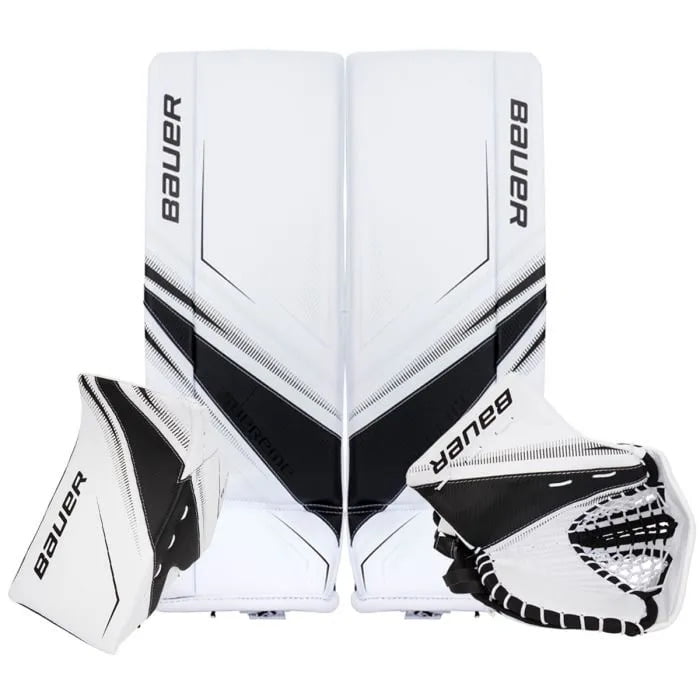
GETTING STARTED: GOALIE EQUIPEMENT
Every single goalie equipment question that I could think of... Sizing, Getting dressed, Costs, Different Brands etc..

GETTING STARTED: GOALIE EQUIPEMENT
GETTING STARTED: GOALIE EQUIPEMENT
Every single goalie equipment question that I could think of... Sizing, Getting dressed, Costs, Different Brands etc..
Preparing For Playoffs
I'd Like to say there was a perfect recipe to prepare for playoffs where you'd win every time, but the reality is with all the teams in the league, only 1 team wins their last game of the year. That being said, there are things you can do to help increase your chances!
Preparing For Playoffs
I'd Like to say there was a perfect recipe to prepare for playoffs where you'd win every time, but the reality is with all the teams in the league, only 1 team wins their last game of the year. That being said, there are things you can do to help increase your chances!
Click here to continue reading
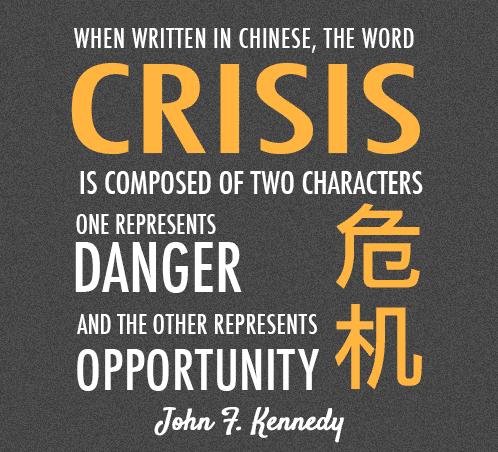
Dealing With Adversity
Has your son or daughter recently experienced the heart breaking experience of being released from a team?? If so, you are in a very precious time in your child's life, a real fork in the road. How you as the parent handle this decision will likely decide if your child continues on the play hockey for the rest of their lives or quits at the age of 15/16.

Dealing With Adversity
Has your son or daughter recently experienced the heart breaking experience of being released from a team?? If so, you are in a very precious time in your child's life, a real fork in the road. How you as the parent handle this decision will likely decide if your child continues on the play hockey for the rest of their lives or quits at the age of 15/16.
Click here to continue reading
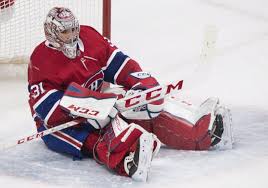
Learning To Lose Vs Training to Win
Your teams down by a goal. The clocks winding down. In a last ditch effort to tie up the game the coach pulls the goalie. GOOOOAAAALLLLLL!!! YES!! We've tied the game up. What a great feeling, high fives go around, the crowds celebrating and the chance to win the game in OT. Everyone's on cloud 9, well, everyone except the team that blew it. Believe it or not these this could've all been avoided had you seen the signs earlier on.

Learning to Lose Vs Training to Win
Your teams down by a goal. The clocks winding down. In a last ditch effort to tie up the game the coach pulls the goalie. GOOOOAAAALLLLLL!!! YES!! We've tied the game up. What a great feeling, high fives go around, the crowds celebrating and the chance to win the game in OT. Everyone's on cloud 9, well, everyone except the team that blew it. Believe it or not these this could've all been avoided had you seen the signs earlier on.
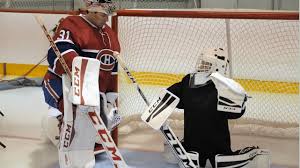
Training To Win...Long-Term
Welcome to the 21st century where everything's a click away!! Our technology enhanced society has learnt to want more of everything faster then ever before. Don't get me wrong, I love being able to chat with my buddies, swipe right on tinder and order a pizza at the same time, but some things are worth the wait. It is possible to beat technique into a kids head at a young age. It's possible to yell at them and tell them to push harder and harder as if they were in an army of 10 year olds. Or should I say and army of identical goaltending robots. The sad truth is these kids will make higher level teams at a young age then most of their competitors, but at what cost?!?

Training To Win...Long-Term
Welcome to the 21st century where everything's a click away!! Our technology enhanced society has learnt to want more of everything faster then ever before. Don't get me wrong, I love being able to chat with my buddies, swipe right on tinder and order a pizza at the same time, but some things are worth the wait. It is possible to beat technique into a kids head at a young age. It's possible to yell at them and tell them to push harder and harder as if they were in an army of 10 year olds. Or should I say and army of identical goaltending robots. The sad truth is these kids will make higher level teams at a young age then most of their competitors, but at what cost?!?
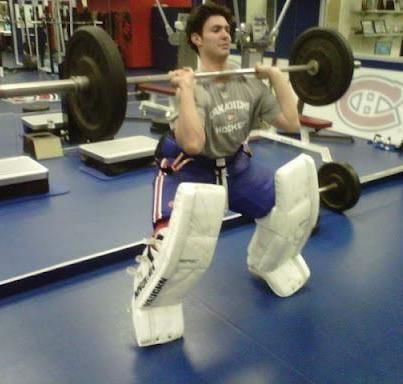
Complete 6 Day Weekly Workout
Geared to 14+ but can be adjusted to suit younger goaltenders as well. If younger, forget about visualization, jumps, please reduce the duration of the workouts as well.

Complete 6 Day Weekly Workout
Geared to 14+ but can be adjusted to suit younger goaltenders as well. If younger, forget about visualization, jumps, please reduce the duration of the workouts as well.
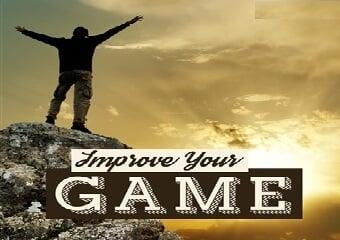
4 Simple tips to improve your game away from the rink
The biggest mistake a young goaltender can do is wait for a goalie coach to correct his every move. Dear goaltender/goalie parent, if you always wait to "feel" like training/learning etc. you will be passed by those that understand you won't always be in the mood to do these things but will do them regardless. The opportunity create positive life habits by helping yourself/your children see the benefits in life long learning, discipline, resilience, learning from failures etc. is now while they're young. Please note, if you as a parent aren't willing to do the same things, don't expect your child too.

4 Simple tips to improve your game away from the rink
The biggest mistake a young goaltender can do is wait for a goalie coach to correct his every move. Dear goaltender/goalie parent, if you always wait to "feel" like training/learning etc. you will be passed by those that understand you won't always be in the mood to do these things but will do them regardless. The opportunity create positive life habits by helping yourself/your children see the benefits in life long learning, discipline, resilience, learning from failures etc. is now while they're young. Please note, if you as a parent aren't willing to do the same things, don't expect your child too.

Pre-Game Preparation
As you decide to become a more serious athlete, you need to start to add more helpful habits into your daily life routines. Success is nothing more then a combination of thousands of those small daily habits.

Pre-Game Preparation
As you decide to become a more serious athlete, you need to start to add more helpful habits into your daily life routines. Success is nothing more then a combination of thousands of those small daily habits.
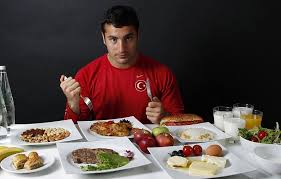
Game Day: Meals
This day in age I would have to believe that we are all aware that nutrition makes a difference in how we feel, if you really need proof go watch Super Size Me. While benefits from avoiding McDonald's (well unless it's 3 AM) are more obvious, others, such as, switching up white pasta for whole grain may not be.

Game Day: Meals
This day in age I would have to believe that we are all aware that nutrition makes a difference in how we feel, if you really need proof go watch Super Size Me. While benefits from avoiding McDonald's (well unless it's 3 AM) are more obvious, others, such as, switching up white pasta for whole grain may not be.

Getting Square Faster
While being square shouldn't always be the goaltenders number 1 priority, it surely helps in a lot of situations.
The concept of lining up ones shoulders, hips and feet square to the puck is a simple, doing it effectively takes time and practice.

Getting Square Faster
While being square shouldn't always be the goaltenders number 1 priority, it surely helps in a lot of situations.
The concept of lining up ones shoulders, hips and feet square to the puck is a simple, doing it effectively takes time and practice.
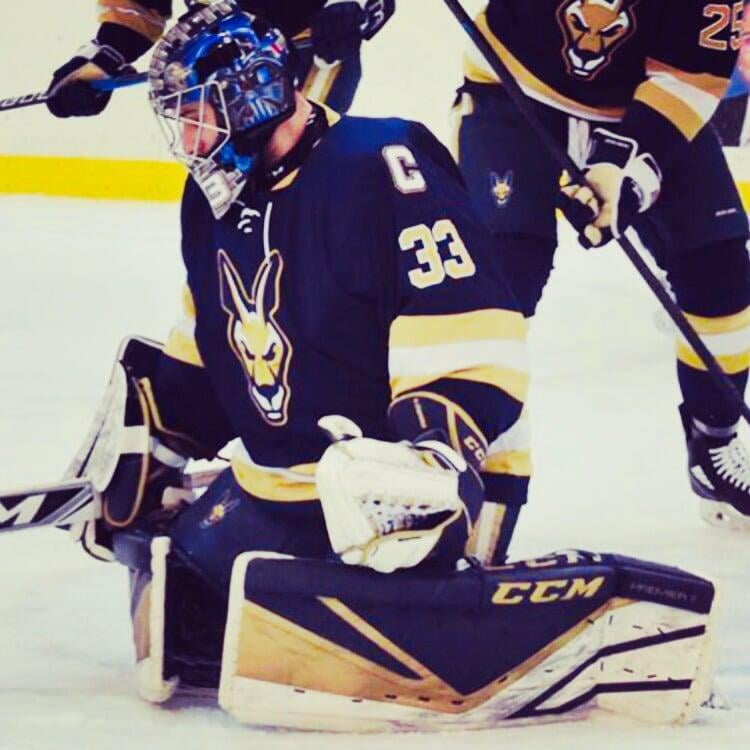
Rebound Control
Step 1, Know which from which locations shots should be controlled. Step 2, Know which shots are easier and harder to control.
Step 3, Create muscle memory for best initial positioning to control shots. Step 4, Learn the technique. Step 5, repeat thousands of times.
Click Here to view how to control various shots

Rebound Control
Step 1, Know which from which locations shots should be controlled. Step 2, Know which shots are easier and harder to control.
Step 3, Create muscle memory for best initial positioning to control shots. Step 4, Learn the technique. Step 5, repeat thousands of times.
Click Here to view how to control various shots
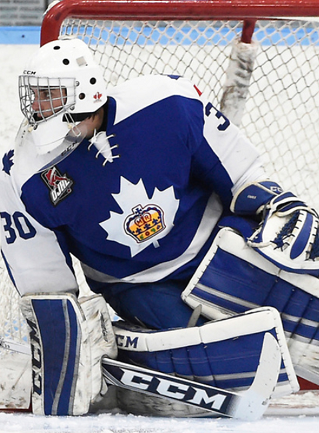
Weak Angle Post-Positioning
Avoid killing your teams momentum preventing weak angle goals. There's nothing worse then letting these "simple" shots go in to feel like you've cost your team the game.

Weak Angle Post-Positioning
Avoid killing your teams momentum preventing weak angle goals. There's nothing worse then letting these "simple" shots go in to feel like you've cost your team the game.
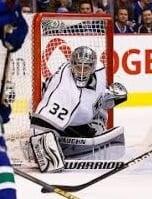
The Many Uses of Paddle Down
How many situations can you think of using Paddle Down? if your answer is one, in the reverse VH on the blocker side, congrats you're only about 15 situations short!!

The Many Uses of Paddle Down
How many situations can you think of using Paddle Down? if your answer is one, in the reverse VH on the blocker side, congrats you're only about 15 situations short!!
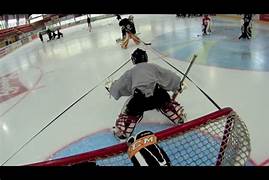
Basic Angles: How to challenge and stay centered
Once skating basics and initial athleticism drills have been tackled goalies need to learn how to stay centered and square in there net. This is a simple concept to grasp but a lot more difficult to master.

Basic Angles: How to challenge and stay centered
Once skating basics and initial athleticism drills have been tackled goalies need to learn how to stay centered and square in there net. This is a simple concept to grasp but a lot more difficult to master.
PLAYOFF PREPARATION
Congrats!! You made it, the grueling schedule is over. The highs, lows and in-betweens of the season are nearing an end. Now The fun part begins!!
Step 1, pre playoff practices. OK, so all season you're focus should be on improving as a goaltender. Every goaltender we coach is aware that outside of the practice before a game, you should be focusing on improving various aspects of your game. Well, good news is, schools out, learning's done (well technical learning at least ;)
What to do now? Well this may seem obvious but isn't the most obvious things often the most effective?! WORK, I'm not talking the way you normally do, which in all fairness in general 95% of today's athletes could put in more effort (not the point right now). Literally every single drill (goalie drill or otherwise) ask yourself if you honestly gave 10/10 effort. Don't lie to yourself. This involves following every rebound, competing when you don't have a chance, playing those pucks when your teammate takes a random puck that wasn't a part of the drill, giving your best even when the drill makes no sense for a goalie (those drills happen and often... give your best, you can always learn something), those annoying shoot-outs at the end of practice that never end and players love trying new moves they'd never try in a game...Play those till the end too!
W
HH
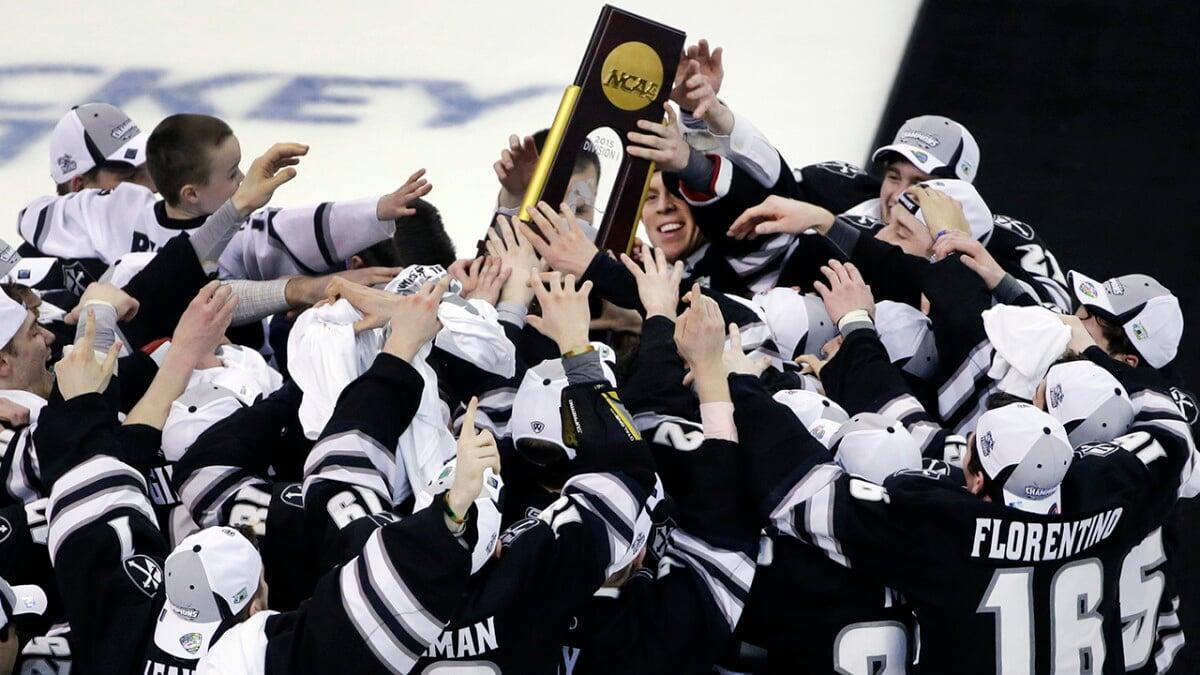
That sums up team practice habits but what about with your goalie coach? Battle, Compete and work on screens and finding loose pucks. Playoff hockey becomes a lot more about will then skill. How bad do you want it, how badly do you want to find that loose puck, work thru screens to find sight lines, do whatever it takes to keep the puck out of the net? Again, the focus is on higher intensity over technical corrections.
Okay, so that's it right? Nope. There are so many different scenarios heading into the playoffs. Underdogs going far, top seeds falling especially in minor hockey when decent teams with great chemistry can often surprise higher seated teams. I won't go into great detail here but I will say, if your an underdog, lavish it, go in there knowing you have nothing to lose, odds are against you and that's ok. If you're a character team, know that you'll have each others backs when the going gets tough. Say you let up a bad goal, in the same way you wouldn't give up because your team missed up and allowed a breakaway, trust that your team will have your back and get that goal back! If you're a favorite, stay even keel, be sure not to underestimate your opponents. Obviously you have the skill but hockey is a game of inches (especially in the playoffs) prepare the same way you would have in game one of the season before knowing how dominant your team is.
I'll end it here, yes I have rushed thru this article, but in today's society everything needs to be "Coles Notes" version. Hockey is a team game, no matter how bad you want it, how good you are as a goaltender, how much work you've put in...Try and remember you're doing this as a team. Be a good teammate, do your job as best as you can and trust your teammates are doing the same. The reality is a lot of the game is out of your control. As much as you may want to get shut-outs and steal every game ( and I hope you do!) realize, you still need someone to score.
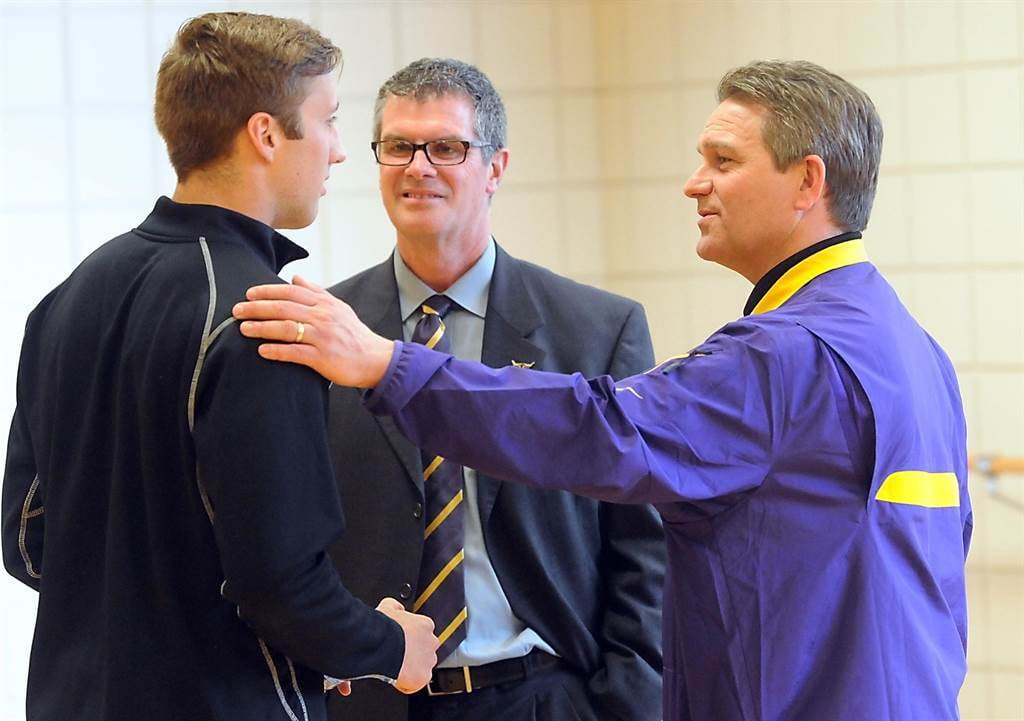
Help your child to get over being released
Unfortunately our initial instincts as parents is often the worst instinct possible, the want to over protect our children. While we want to tell our child it's not you, it's the coaches, they don't know what they're doing! Which maybe very possible. It's the politics, you're better then half those other players. Again, possible. None of these routes lead to the child learning anything for this experience, all they teach the child is a sense of entitlement or bitterness.
The reality is our children are a lot tougher then we give them credit for. They can be very resilient, determined and persistent, if we give them the chance. See, as parents, we have the gift of teaching our kids any lesson we want,well at least before the age of 10-12. It's your imperative to take advantage of these times, before you know, adolescence. To quote a parent I once had this discussion with "We believe our children are like delicate flowers when the reality they are more like pesky weeds"
"Getting cut from a team is easily the worst feeling a child can experience in sports. That being said, it is also one of the most crucial experiences in your child's development."
The truth of the matter is that there are so many reasons why you child could've been cut it's hard to imagine. Maybe the coaches son was a bubble player but the coach is a great coach so they decided to accept the fact that a slightly better player wouldn't make it. Maybe the coaches kid has a good friend whose close so they take him. Maybe you're a pain in the butt parent so they took it out on your kid. Maybe the evaluators coach the kids in extra sessions on the side so they backed him. Maybe the coaches have preference for one type of a player over another, it doesn't mean one is much better or worse. Or maybe it was a mistake, evaluators aren't always right, we make mistakes all the time. If no one made these mistakes wouldn't every first round pick in the NHL turn out to be a success?! Player selection isn't like doing math, there is rarely a right or wrong answer when it comes to player selection. The fact is, if your child was a top third forward, top D pairing or top goalie, he would have made it. Since he wasn't, there's no point thinking twice about it.
What to do now. Well here's the good stuff. Depending on your child's age, either you or the child should approach the coach (after 24hrs) and ask what needs to be improved for the following year. This is also a great time for a life lesson. Again not right away. If there's something you've been asking your child to do, such as work harder, now could be a good time to follow up. Simply explain to your child that you didn't see them working as hard as they could have, if they really want to make the top team next year, this is a good time to dedicate himself to learning how to work hard. Dealt with properly kids will be like sponges during this time period.
The truth of the matter is, problems aren't the end of the world, unless you make it that way. As the above symbol depicts, with every problem comes an opportunity.
Recognizing the Winning Impaired
Your teams down by a goal. The clocks winding down. In a last ditch effort to tie up the game the coach pulls the goalie. GOOOOAAAALLLLLL!!! YES!! We've tied the game up. What a great feeling, high fives go around, the crowds celebrating and the chance to win the game in OT. Everyone's on cloud 9, well, everyone except the team that blew it.
Some goalies are born winners, others have learnt to win and believe it or not others have been trained to lose. Yes, I said trained to lose.

"Careying" the Weight of Your Team on Your Shoulders
Did you know that a disproportionate amount of goals are scored in the final minutes of close games? You might be thinking duh, the empty net goals, I'm not talking about those. I'm talking about the ones scored by the team that's trailing. Anyone who has been there can tell you the nerves that come into play during the final few minutes of close games. Similarly, anyone who has played hockey can tell you if they were on a team with a Big Game Goalie or a good goalie who just couldn't quite get the job done.
*Please note goalies may have multiple types of the below characteristics, they may evolve into others and most importantly, there's always a solution.
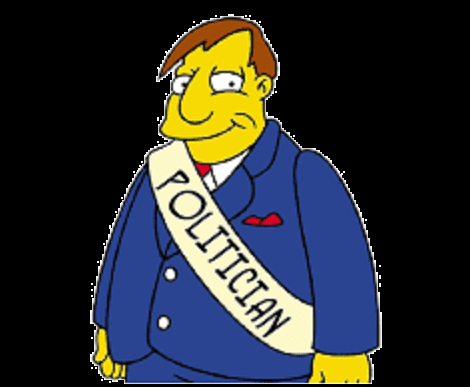
The Politician
A somewhat less then politically correct term for these guys is ass kissers. We've all met them, the kid that's all to eager to do everything he's supposed too. At first you think, great kid! Man I wish I had 20 of these kids. Next thing you know as soon as the doors are closed he's a completely different person.
Not all politicians are bad goalies, it's two faced kind that are the ones that will. The straight up, well raised individual who is genuinely concerned with others well being will struggle during the season having highs and lows but come crunch time won't disappoint . It's the ones that behave well in front of "the man" but behind the scenes is a delinquent. Those are the ones you need to be concerned about. He will hurt your chances of winning!
Why do these goalies fail to succeed? Simply put they are so busy being fake and trying to "please " others that they aren't in the habit of being themselves. Now this trait often won't have a detrimental during the season. However, unless his skill level is far above the leagues caliber you will start to see "questionable" or "poor timing" goals go in during important times of the season (tournament elimination games, playoffs). When you have less than a split second to make a decision that affects the outcome of the game, you need to have your own set of rapid decision making abilities.
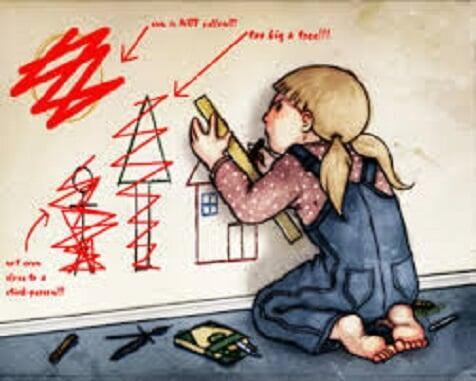
The Perfectionist
Often goalies with more technical skill at a young age are the ones whom are the most winning impaired. Thing is, this flaw doesn't appear until the skill of the competition is equal to their own.
These goaltenders are so focused on being perfect they lose sight of what really matters. Making the save at all costs. Their perfectionist disorder does have some upside. Since they never feel they are doing good enough, they generally work harder and focus more so as to have a very "pretty" technique. Often these goalies will fool you as they are generally more skilled then their competition. They will win regular games with ease and are generally more consistent during the season. When it counts, they will falter. Imagine forcing yourself to always be perfect, never say the wrong thing, never make any mistakes...what a stressful life. That's what these goaltenders go through every single day. I must be perfect, I have to make the saves and they have to look like this!
Then the unimaginable happens, a goal goes in at a miss-opportune time. Poor kid, all he can think about is how he didn't do what he was supposed to.
Why'd the goal go in? The reality is, not every play is perfect, the game is more intense in the playoffs, highlight reel saves often win games while weird bounces often cost them. It's those little subtleties, the imperfect plays, the shinny hockey and bad bounces that this goalie missed out on learning because he was busy being perfect.
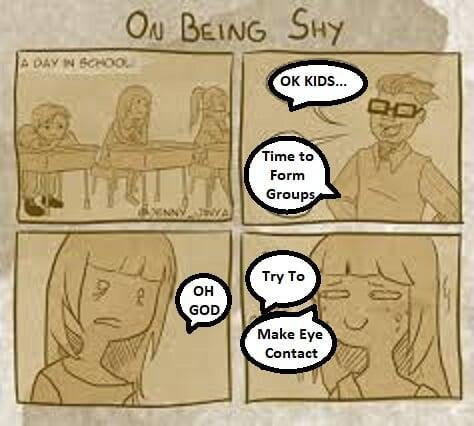
The Overly Shy Goaltender
I can't stress enough how there are exceptions to every case. Some shy kids are really good goaltenders and have the ability to win, however, it is more the exception then the norm with these kids.
Again, similar to the politician, these kids are uncertain of who they are. Unlike the politician they don't do it for their personal gain, somewhat irrelevant, yet I feel the need to share. This not being a self assured individual is detrimental to the ability to make a quick decision for oneself. Yet is of upmost importance for any goaltender. IT NEEDS TO BE PRACTICED REGULARLY.
When are these kids capable of winning? Generally when they are of above average intelligence and are comfortable with being social awkward/nerdy but they accept it.

The Fast Talker

"Careying" The team
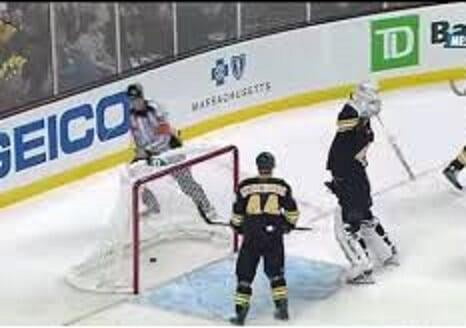
The Pressure Cooker
I don't know anyone who doesn't love this kid. He's what coaches preach about all the time, HARD WORK!
Have you ever wonder why hard work is the biggest thing most top end coaches preach to their players? Is it not because they have a lot of other skill sets other than this one? Look at the typical hard workers, it's your classic 3rd or 4th liners. While we love these guys and were all happy when they turn in big games, THEY DO NOT WIN CHAMPIONSHIP GAMES FOR TEAMS! They help out. On top of it, those 3rd and 4th line guys in the pros were guys whom all had the skills to score 30+ goals in juniors. They eventually realized they weren't skilled enough to do so at higher levels decided to accept their roles as shut down forwards.
I've gone off on a bit of a tangent here, but all this is to say goaltenders whose game is based solely on hard work are going to cost you more big games then they will win you. Their work ethic comes from a beliefs of not deserving anything and not being good enough. How's a guy suppose to win if doesn't think he deserves it?!? Let work ethic be a learnt skill and not a way of being.
Turning these kids around is possible, but challenging. You need to get them to relax, calm down and enjoy the game more. You as a coach need to work overtime to help them to see how good they are! Good Luck! ps- They will resist.

Coming out of his Bubble
I always remember growing up and hearing people say "man goalies are weird". While the "stigma" is changing, it still remains. Reason Being, goalies need to be there own people, so important, if that means quoting astrological signs then so be it.
Now these "in their own bubble" types can be very good goalies. They're easily recognizable as they are a bit bizarre and socially awkward. As their skill level exceed the level they are playing at they can dominate and win big games. However, when the playing field levels out it tends to be a rude awakening. No longer able to get by on skill alone these kids will start to struggle and under preform in big games. For awhile, it will be looked over as "The team just didn't show up today" but eventually people catch on.
The key is to catch this trend early enough before the snowball effect happens. It sounds easy but getting these kids to understand the difference between "I HAVE to be on the top of my game today" and "I GET to be on the top of my game today. The truth is it may or may not happen and while I really want to help my team win, it might not happen. I which case I TRUST that my team will be able to support me". It's that simple ;)
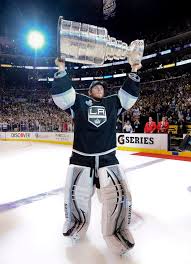
TRAINING TO WIN
How can you tell if your son's goalie coach is training them to win in the long term? Simple, they don't all look exactly the same.
"Hey Stef,
You said all goalies shouldn't look the same, but don't they need to learn the same things?"
All goalies looking the same and all goaltenders learning a set of basic skills are two different things. All goalies start to look the same when they are all given the exact same message, generally square, robotic goalies.
Now there's nothing wrong with being a square robotic goalie, if it matches your body, mind set and athletic ability. Yes, all goalies need to know when they have to be square and how to do so, but you don't always have to be. ex: a smart kid who can read the play, recognizes the shooter is in a low scoring zone and the player looks to be passing. Here's a great example where cheating, being smart, is advantageous.
Remember in high school, that math teacher that always wanted you to solve the problems his way, with his steps? Remember how your way wasn't good enough even though you got the right answer?! It had to be his way. What about the boss that insists on micro managing every single step, insisting that everything be done his way. How motivating are these people? What are they really teaching us to do? Well, I can tell you one thing, they aren't encouraging your natural abilities.
"Ok Stef, I get it, the kids shouldn't be robots, but I've seen the technical goalies make the top levels when they're 9-12"
You know at a young age you are absolutely right, I'd say even up to 16-17 depending on size and athletic ability. Highly technical kids will be better then the level they are playing in. They will have developed basic tactics better then most for their age.
Sounds terrible right?! The thing they won't have developed is ability to trust in their instincts, the ability to make natural split second decisions. Why does this matter you may ask? Well, for most other positions in sports, the truth is it doesn't really matter. The difference for a goaltender is the fact that we have minimal control over the on the coming play. Thus, we are in more of a reaction mode, specifically on advanced moves, fake shots, broken plays, screens, deflections (yes I'm aware they're are tactics for these situations). Are there tactics for a double deflection that goes off your defense's chest before getting to the net? no, there isn't. Well, that's not entirely true. Natural Instinct. That instinct that slowly dies when all you are told is to X here, Y there, nothing else.
"Alright Stef, I'm starting to understand, but wait, unlike the robots,i see those less technical goalies let up weak goals."
You are correct, less "technical" goalies have those flaws at a younger age, it's a part of the give and take of a less repetitious system of learning.
However, the difference is these "less systematic" goalies rarely let up those goals at inopportune times and when they do, they can rebound a lot faster. "Hmm really why is that?". Elementary my dear parent, elementary. A robotic goalies primary instinct is to be "perfect" and can only really apply tactics they've been taught. When full on technique is coached from a young age, the goalies have a set of rules they have to follow, breaking these rules makes them have to repeat the drill. Therefore they apply the rule and learn that anything else is incorrect.
At the end of the day, while technique does help what really matters is being able to stop the puck at all costs. Thus, when training, technique or otherwise, this concept must be kept nearby.
" It sounds to me like you're saying who cares about technique and reps?!?"
NOT AT ALL, sorry for misleading. all i'm saying is the timing as to when it's integrated matters.
Repetition is the mother of all skills. What does the science say now a days? 10,000 reps to make a motor skill automatic. Goalies have some base patterns which they need to recognize and be able to apply automatically, I'm 100% in agreement. It shown the habits learnt in our early years have the most impact on our future success. So I ask, what would you want your child's base to be? Would you rather someone who was focused on the look, the technique of doing the right thing, beating themselves up until they got it right? Or the character behind the sport, competing, finding your own solutions, athleticism, passion for the game?
Base technique is important, but equally as important is integrating it at the right time. For some kids, type A kids, especially can be brought in earlier. For more natural go with the flow athletes, it's still important just not as much and should only come in later.
"Doesn't consistency come from have strong fundamentals and a base to fall back on?"
Hey I think you should be writing this column! Yes, 100% it does. Have you ever thought of what a strong base is comprised of?
While skill wise, technique is the base. Is that what the base of a goaltender is? I would have to argue that the base of a goaltender is to be in the "zone". In the "zone" is simply a goalie way of saying in the present moment. In reality, while learning these FUNdamental skills, one should be doing so while remaining present. Again, technique is important, but always learning technique makes you think there's always something else you should have done. It trains you to always use logic and concentrate on what you need to do. While at the right age, these are 100% required skills, as with the ability to turn off your concentration. Some would argue the only way to not think about basic skills is by having repeated them so much that they become automatic. To them I agree 100%. All I'm saying is the timing of the integration is very important.
What can I do if we've already subscribed to a robotic life?
Step I, open your mind to different ways of playing the game. Not changing your game, just adding different aspects to it. Practice Athleticism & competing drills, get rid of the phrase "that will never happen in a game". Odds are it will even if it shouldn't.
Step II, Remember there is next to no conscious thinking during games, minimal correcting, zero thinking of what's being taught to you in goalie school. You have what you have at this point, trust in it and go from there.
Step III, Understanding that good goals go in, sometimes the shooter makes a great shot or a great play. Other times your team completely bails on you. Other times you let up a stinker, it does and will happen. Visualize these situations, yes that;s correct, when a goal goes in in your visualization, don't try and repeat the scene. Instead, see how you want to react to the goal. How you get back up. How you show your teammates "We got this!"
Step VI, it's 100% natural to want to have stopped every shot. none the less, I've never heard of anyone with 0.00 G.A.A. Learn how to handle your emotions when you let up goals. You will struggle some games, accept it. Accept when you're off that you will have to battle twice as much, work twice as hard, and you'll still let up more goals then usual. it happens.
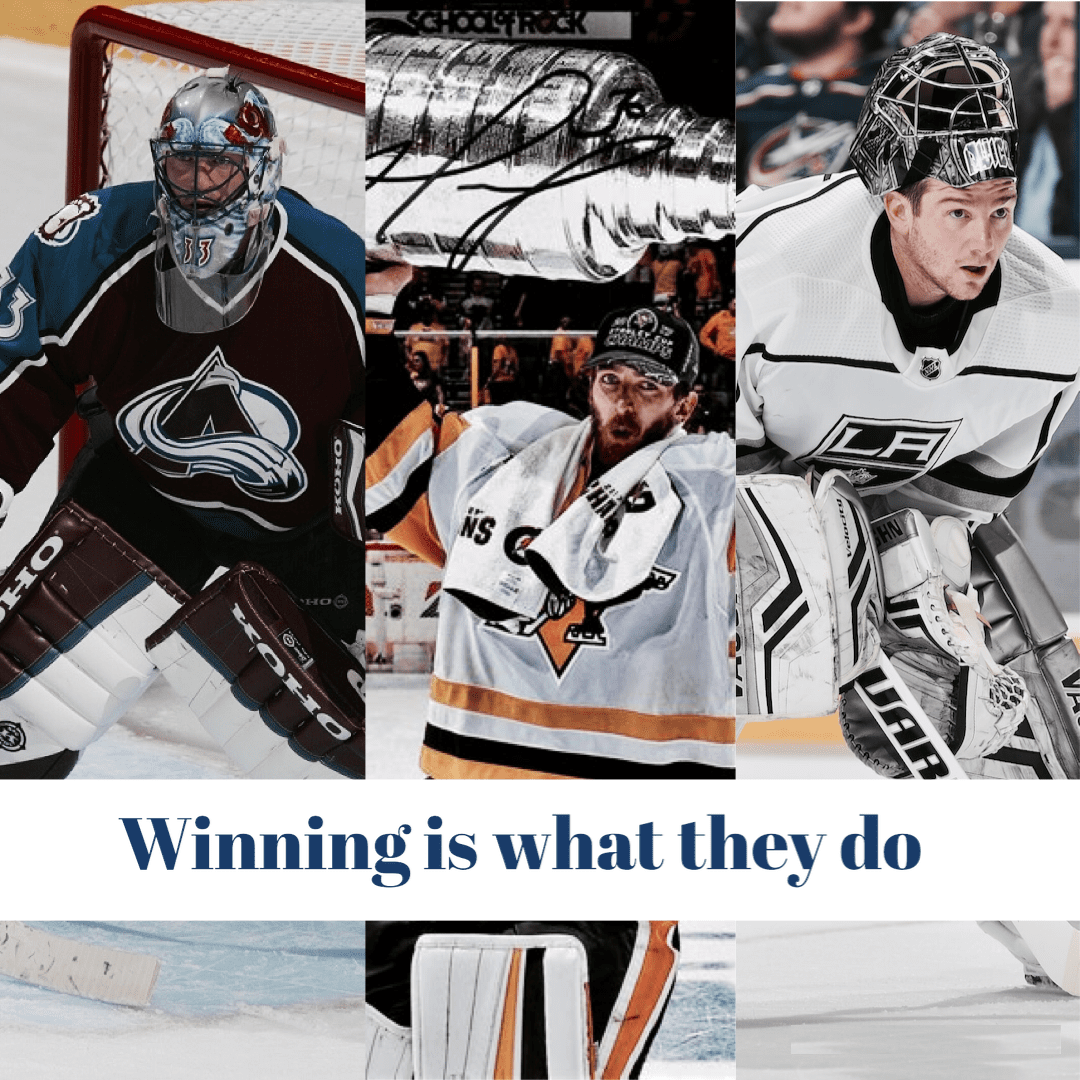
The link between having your own style and ability to win
Did you know of the past 25 Stanley Cup winners the starter has been Canadian 19 times, I could go further back but that wouldn't be fair.
Matt Murray - Very unique style, never a high draft pick. As with a lot of these goalies inconsistent regular seasons.
Corey Crawford- More technical then a lot of these goalies due to less athleticism. Not robotic, doesn't just stay in paint.
Johnathin Quick- Unique game based on his athleticism and speed.
Marc-Andre Fleury:- Won cup before becoming a box paint goaltender. Has since changed to aggressive style with Vegas.
Chris Osgood- What technique?!? ;)
Martin Brodeur- Unique. Not the best puck stopper but he did what came true to him and was a third defenceman.
Patrick Roy:- AHAH you got me... Or did you? Butterfly style wasn't a technique back when Roy entered the league. He innovated it with the help of Francois Allaire, it felt natural to him.
Tim Thomas- What compete, would've won more if he had the chance.
Examples of Goalies who are overly robotic/Systematic and will never win the cup: Sergie Bobrovsky, Kari Lethonen, Tuuka Rask, Devan Dubnyk, Cam Talbot, Martin Jones Etc.. the list goes on. I should mention they might win the cup but only if they face one of the other goalies in on this list in the final. Please note this article was written a few years ago when these guys were in there prime.
"Yeah but those guys all made the NHL and have done well." To that i say you're right. I would hope that NHL Scouting picks up and recognizes this trend. As of now NHL scouts have simply given up stating that goalies are too unpredictable to draft so they pick them up in lower rounds.
"Why doesn't this show up at lower levels?" Well, sometimes it does. The truth is if your child has above average skill, ability to read the game, size, etc.. He simply won't feel the pressure as he will believe he is better then the people he is playing against. That and his above average skill will save him.
"So what can we do to train to be a winner?" This was the point of the article eh?? Okay well I've gotten too side tracked so this is going to have to wait for the Part II. Sorry about that!
"What if our child is already like this, what can we do to help him change?" The good news is it's not too late! The bad news is that's a whole new article!! Updated- Article included Above

Long Term Athletic Development Model (LTAD)
In a world that is all about the NOW and short term quick results, It's important to realize why you have your children in sports in the first place. Please check out this link to Athletic Canada's LTAD. Click Here
Ages 6-9
The key is to have fun while developing Agility, Balance , Co-ordination and speed thru a variety of sports. Introducing sportsmanship and ability to start following rules.
Age 9-12
Continued FUNdamentals as well as an introduction to physical, mental, cognitive and emotional development.
Age 12-16
Increased focus on specific sport skills, learning to manage peak training periods with rest periods, very big importance on flexibility and proper strength training.

Play Multiple Sports
The Long term benefits of playing multiple sports has long been proven in reducing injuries, increasing mobility, and coordination.

Stick Handle and Shoot
It's as easy as starting with player gloves and a weighted stick handling ball to eventually working your way up to a puck and your blocker and trapper.
AGES 6-9
AGES 6-9
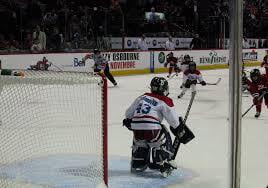

Play Ball Hockey
Young goalies can learn net awareness, active sticks and the will to compete simply by playing ball hockey "for the cup" in their basement or on the streets.

Leg Work
Strapping on the pads and getting use to getting up alternating legs. You can by a slide board or simply put on socks and knee pads and pledge up a wooden floor.

Stretching
That great flexibility that you've always experienced will start to decline. Starting to stretch daily is a great way to help with injury prevention

Hand Eye Co-Ordination
From bouncing tennis balls against the wall, using reaction balls, juggling, stand on a balance board at the same time, there's no shortage of ways to improve.
Ages 9-12
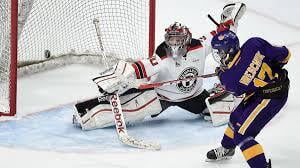

Study NHL
What better way to improve then to learn from the best. Luckily the best play live for us 82 games a year. Look at what the goalies are doing, why? when? how?

Body Weight Exercise
Learning proper form at this age is critical as it will set you up for success before the desire to have a beach bod sets in! Use youtube or ask a professional.

Pre-Game Prep
Time to start figuring out what kind of warm up works best for you. Definitely some is necessary but how much and what kind goes with your body and personality.

Visualize / Journal
If visualizing was good enough for Patrick Roy, I think it will work for us too. It could be as simple as improving to speed of learning a new technique to creating a stronger character trait.
Ages 12-16
Ages 12-16
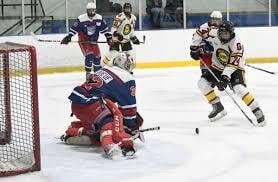

Nutrition / Sleep
There's a lot of info out there and on this site as to how much sleep you should get, what type of foods and how long before game times should you eat.

Emotional Awareness
Different situations cause us to react differently. Be it the over competitive goalie who gives up after 2 goals or letting up last minute goals. We need to be aware and learn how to handle these situations.
FOR ALL AGES

Yoga
As a coach, doing repetitive movements is the name of the game. Yoga is a great way to work small muscles you never knew you had, as well as balance, flexibility and mind. I recommend Yoga with Adriene for home use.
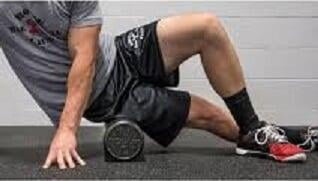
Foam Roller
If you've never done this before, be careful, you may want to cry. Foam rolling is basically a massage you're giving yourself. Great to relieve tension and with time and regularity increase flexibility.
Artificial Ice
If you have the spare space and budget, you can keep your training going without leaving the comfort of your home. Surprisingly not to rough on your gear, it adds resistance so it's definitely a workout.

Look Up Maria Mountain
Maria Mountain of Goalie Training Pro has focused on Goalie Specific Off-Ice training since 2002. She has a good range of available exercises on youtube. I recommend her series on 10 Secret Habits of Pro Goalies.
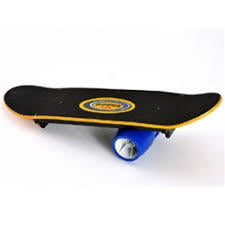
Balance Boards
There are a variety of different balance boards out there, many of which you can hand craft. Not only can you work your balance but you can train hand-eye or make it a workout at the same time.

Read Books About Top Athletes
There are so many book on former athletes and championship teams. If this is what you want to do, then study it. Try Reading Patrick Roy: Winning. Nothing Else. Ken Dryden's The Game. Heck read this website ;)
Pre-Game Preparation: Prior to Game Day
When does it start?
If you ask any nutritionist, substances we consume stay in our body for up to 21 days after the consumption. So the short answer is three weeks before the game. We could exaggerate and go even further to say that Pre-Game preparation actually starts months before while we are at the gym but for the purpose of this article I will not go that far. For the sake of this discussion, I will cut the Pre-Game preparation down to three days prior to a game.
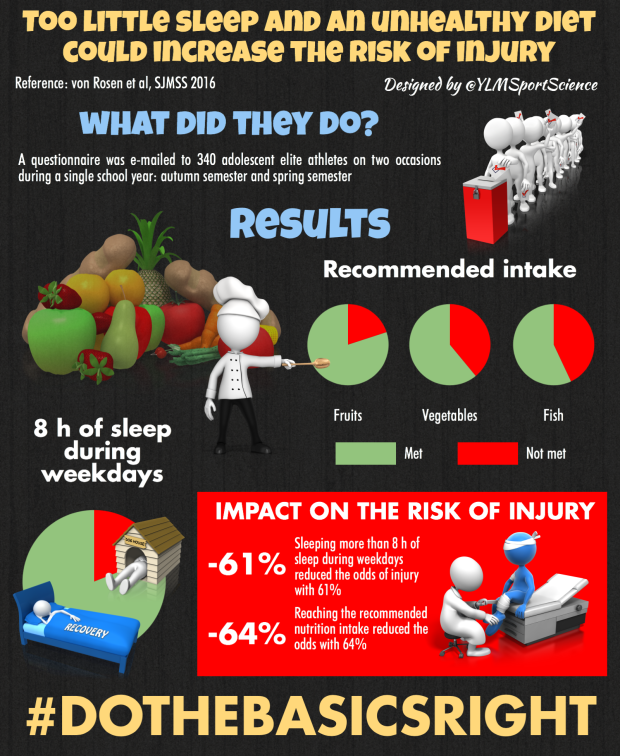
What is involved in preparing properly?
Long gone are the days that a few stretches, in Guy Lafleur's case, a smoke, is considered an ample warm-up. Warm-ups now consist of multiple components from general activation, to position specific activation's, hand eye co-ordination and visualization. These components will ensure you to warm-up well and will be expanded on in a later section.
The title of this segment is pre-game Preparation not just how to warm-up. Now a days, pre-game preparation starts more than a few hours before the game.
Why 3 days Prior?
The main reason is setting yourself up for success Physically and Mentally. Poor nutrition and sleep habits will strongly affect you up to 3 days after the event. Whether it's only sleeping 4 hours or eating McDonald's a couple of days before a game, you are setting yourself up to having less then maximal energy for your game.
Mentally you can start by reviewing game footage of the team you are playing against. Knowing the tendencies of the teams top players and visualizing accordingly will set you up for success. I would not recommend doing this the day of a game as the less you think about the game the day of it, the better.
What is involved in proper nutrition?

Breakfast
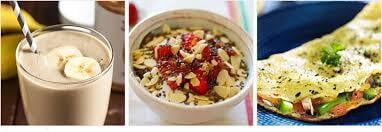
Breakfast should be the largest meal of the day and is also the most forgiving meal. What I mean by this is as a general rule of thumb white carbs should be avoided as the nutrients from these can be found in their whole wheat substitutes, the rest is more or less sugar. If you had to choose a time of day to have white carbs then breakfast would be it. The reason being is you have the remainder of your day to burn off what you have digested.
Snacking
Healthy snacks are a very important part of an athlete's diet so as to avoid the highs and lows from either being hungry or from eating the wrong foods. When you don't have healthy snacks you will tend to crave sweeter foods as you body needs a certain amount of good sugar. By good sugar I mean sugar from fruits, vegetables, yogurt or even granola bars, nuts, smoothies...not from junk food. With good snacks, the body can maintain itself levels of energy throughout the day.

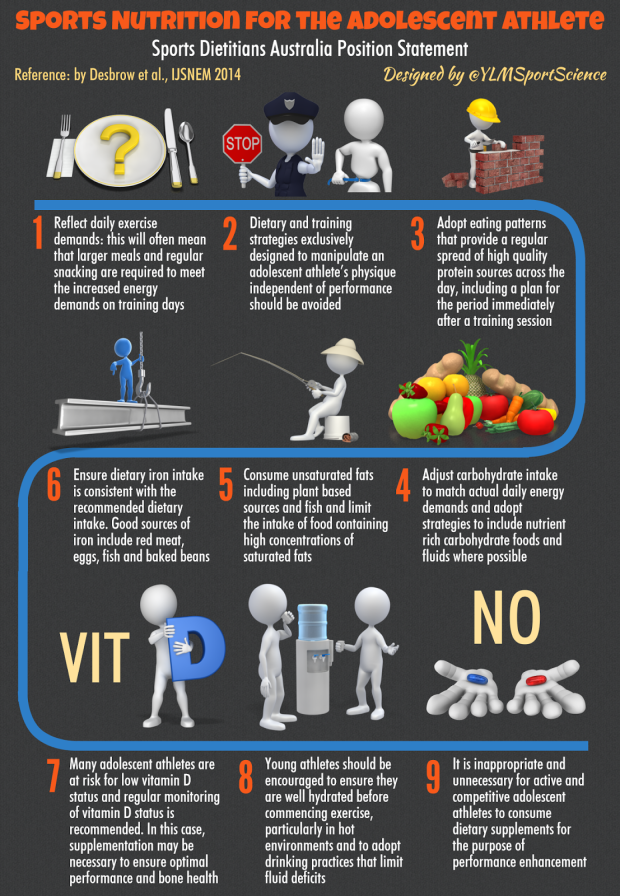
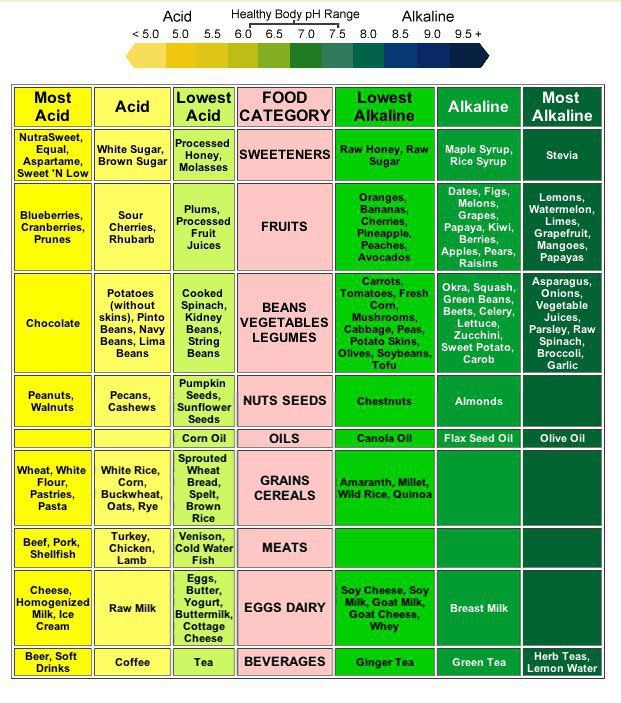
Greens, the more the better!
Greens! Whatever the meal, even breakfast, add more dark greens to your plate! The darker the better, there is no such thing as too many greens! Make a banana, frozen spinach, OJ smoothie in the morning. Promise it tastes better then it sounds. Raw Broccoli as a snack, If you need some dressing to help it go down in the beginning , then go for it! Why are greens so important?? Well they are one of the best ways to get rid of all the acid that builds up in our bodies. The acid, some of us may of heard of lactic acid, there are others as well, comes from everything from red meats, sugar, fruits and even exercise. Thus the more greens we eat the better!
*Credit for the above photos goes to https://ylmsportscience.com
When To Eat Which Foods
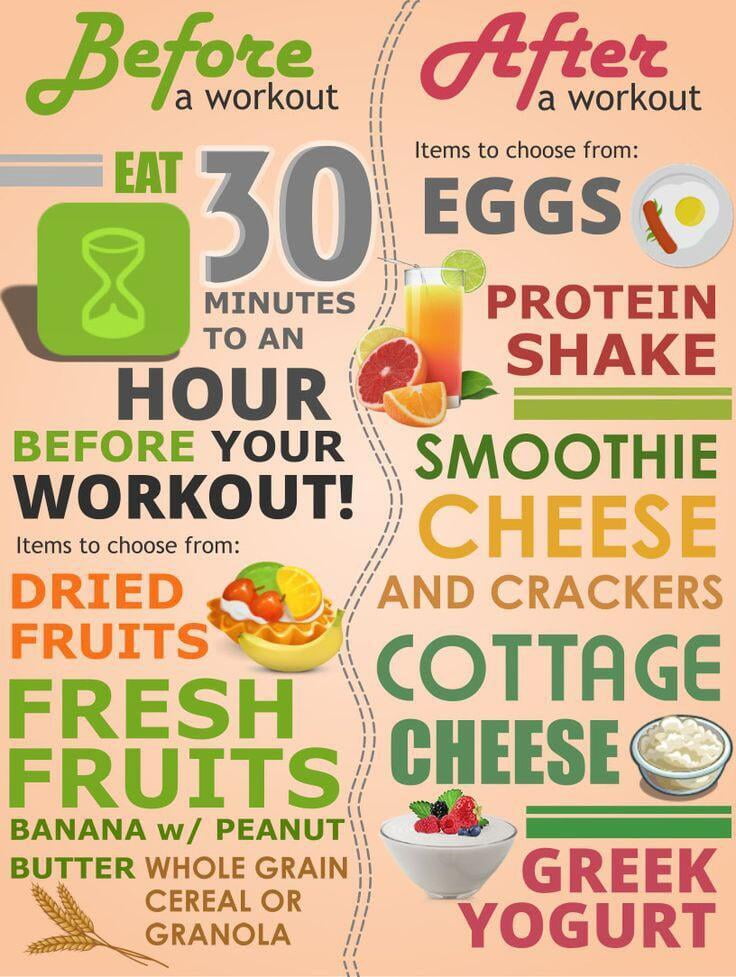
The Importance of pre & post work-out snacks
Pre-Workout: Gives you the energy to get thru your workout. Depending on the type of workout you're doing, you should adjust your the foods you consume. ex: Carbs are best for shorter, interval training. Healthy fats for longer workouts. If you've poorly timed your food that day some fruits (especially juices) are quickly digested and provide good quick energy.
Post Workout: While working out, your body tears muscles, in order to aid your body in rebuilding then more quickly, you need to help fuel your body accordingly.
Read More , View the original source of this image
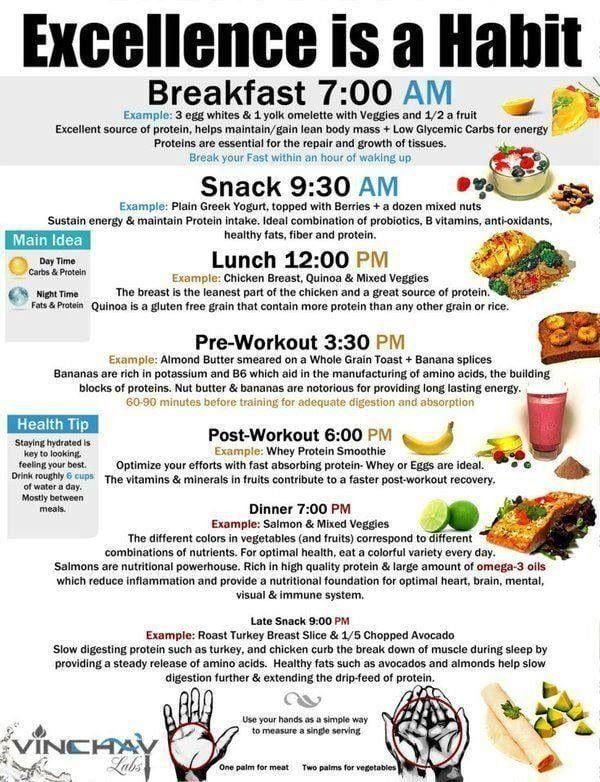
When to Eat What?
Different foods have different benefits to them. While Carbs produce energy, they can also turn into fats if not eaten at the right time of day. Proteins rebuild muscle but heavy meats will effect the way you sleep. Timing is key, and well, trying to avoid the usual culprits; Process foods, sugars, white carbs etc.
Please Parents, don't go forcing these habits on your youth. Have you ever heard the song by Alanis Morisette, isn't it ironic? I'll tell you what's ironic, seeing a kid whom at 10 years old was forced to work out intensely doing tire flips in his backyard everyday, only to have the biggest tire belly on his team. Follow these habits yourself and help your children to understand the importance of them.
Night Games
Unless you plan on eating a huge meal at midnight the night before an 8pm game, I would recommend the big meal come first thing in the morning. The same nutritional rules apply. Load up on the healthy carbs and the light meat. Some of you may think, great let's go out for a big Brunch at Chez Cora's...wrong answer. Bacon is way too heavy and takes way too much time to properly digest. White toast is no good. Double that for delicious maple syrup covered pancakes. Coffee is only stimulant and will lead you to crash within no time. Try whole grain toast, bagels, eggs, oatmeal. I know the selection isn't as great, but it's either that or get the league to change the start time of the game.
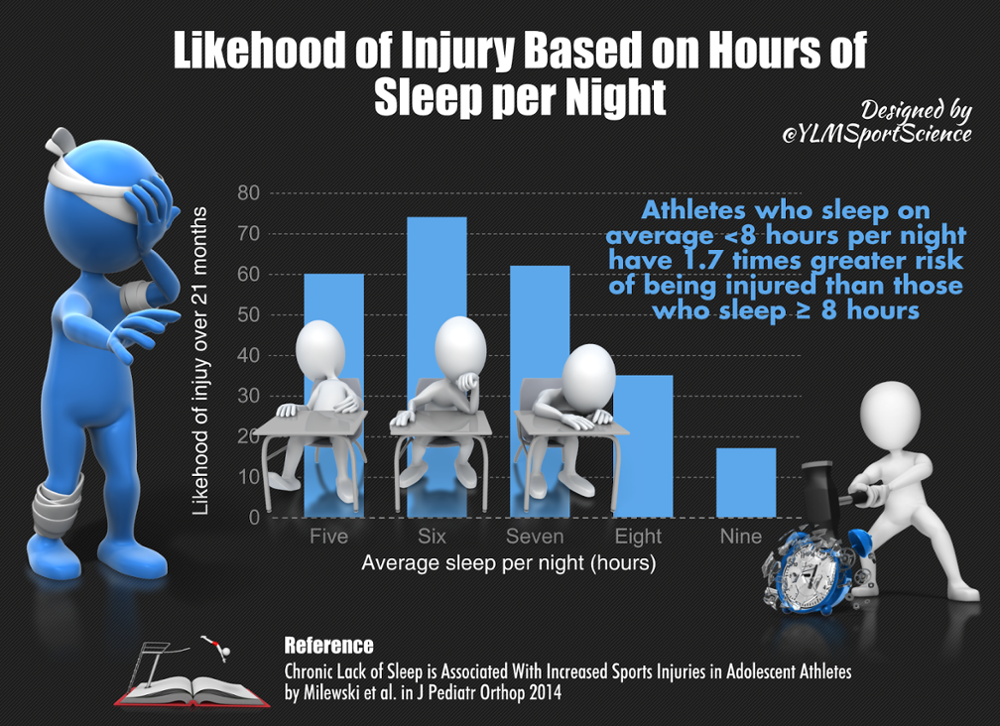
Not entirely relevant to this section but very neat.
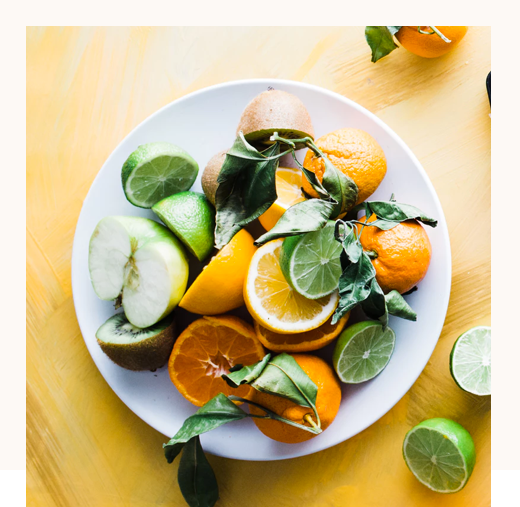
Day Time Meals
Now that we've loaded up in a healthy way. What do you do with the rest of your meals before the game? let's not waste all this effort you've put in to eat well the night before the game/ morning of. Or at least read this far in the article :) Eating to soon or not soon enough before a game can effect your performance. Below I have inserted a chart with what the general ideas are for pre-game meals. With everything I like to add, go with the guidelines but test what works well with your body.
Size of Meal | Hours Before Game |
Large | 3 to 5 hours |
Small | 2 to 3 hours |
Liquid "meal" | 1 to 2 hours |
Snack | 1/2 to 1 hour |
HYDRATION
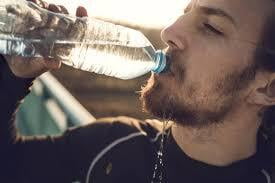
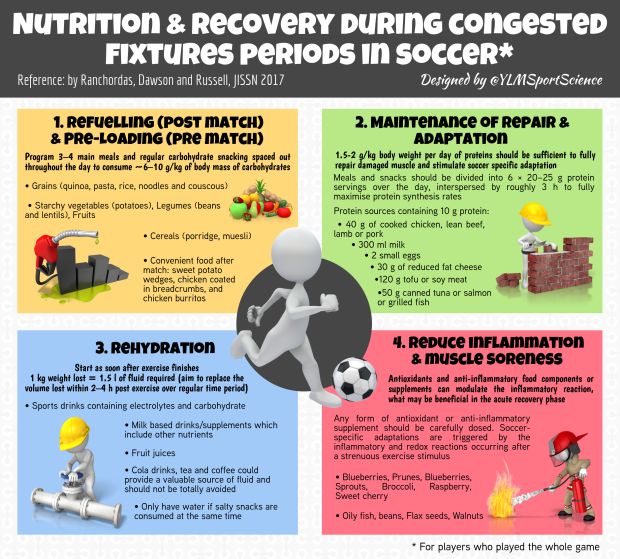
*There was no little doodle for hockey but i can imagine it's similiar
Meal Sizes-
From the previous paragraph, you've now realized, by the time you're thirsty, it's too late. Well I can't say the same goes for eating, but something similar arises. If when you are hungry and you avoid the signals for awhile, what ends up happening is your body ends up craving sweets. The reason is simple, you need to energize and the quickest (although by no means the best way) of doing this is by eating sweets. The simplest way to avoid this is by transforming the way you eat meals every day.
The old school 3 meals a day with supper being the largest meal of the day is long gone. Supper used to be the biggest meal of the day because cave people would have to wait all day for the hunters to come back with the food for the day eheh... Ok maybe not, but it was the time families used to be together and thus was the less rushed of the day. For the purpose of nutrition you want to look at having 5-6 "meals" a day. Generally speaking breakfast should be the biggest meal of the day and supper the smallest. As an athlete you need to adjust accordingly depending on your game and practice schedule, but in general, why would you eat a big meal which will give you lots of energy just before going to sleep...It doesn't make any sense. Breakfast is the meal to start your day the right way. It has been proven that by eating breakfast you will have more energy and actually even lose weight compared to if you were to skip it. Generally, lunch should be a good size but not over done (again varies depending on our training). I believe every grown up can remember the odd Thursday or Friday lunch time that they decided to indulge as it was the end of the week and they felt like treating themselves...or how about going out for that huge Sunday morning brunch, how do you feel after? Refreshed and ready to go? You might be ready to go, for a nap! I would say a small size of good carbs with a similar size of lean protein some sort of dark greens and veggies would be ideal.
Healthy Snacks:
What about the other 2 or 3 meals? Well you want to look at having healthy snacks. Very simply put, fruits, granola bars, yogurt, veggies, (yes dip is allowed), nut (especially almonds) are all healthy snacks. In general, try and balance out these snack types, the only type you should overdo are the greens.
Food Guidelines:
Keep in mind these are guidelines having some junk food or pizza from time to time will not kill you and may even be good for you. Confused? All this time I've been talking about eating well and now I say junk food isn't bad for you?!? Glad to see you've been paying attention. I was just testing you! Ok ok, In all seriousness, there are a couple of instances that junk food is ok for you.
The first is if you are just starting to change your nutritional habits. If you currently drink 4 cans of Coke and eat poutine, chips and chocolate bars daily. Then start by cutting down to 2 cans of Coke and eating the other stuff every other day. The goal here is the help you develop better habits, not drive you mentally insane. Eventually you can cut down more, but you should set it up in such a way that you will be able to stick with it.
The other time where junk food is "permitted" is for everyone else. Don't deprive yourself. Let me clarify, don't pig out either. If on occasion you really want a pizza and a coke, go for it. If you happen to be a robot and never want any sweets ever, good for you, for the rest of you...ENJOY! If you deprive yourself eventually you will cave and you will overdue it. Be smart and indulge once in awhile.
All this Game Day Talk and I haven't even covered what happens when you get to arena, or what activities you want to avoid the day of a game... I will save your ears for now, let you digest what you've read, literally ;) and will continue in the next article.
SLIDING OUT SQUARE
Rebound Control
Below we will cover the 5 major areas of rebound control( Glove, Blocker, Chest/Body, On-Ice, @ Pads) . Yes there is more then 5 but for youth goaltenders this will suffice. SECTION UNDER DEVELOPMENT
Use this paragraph to describe what you do. This is a great place to let your visitors know who you are.
Use this paragraph to describe what you do. This is a great place to let your visitors know who you are.
Use this paragraph to describe what you do. This is a great place to let your visitors know who you are.
Use this paragraph to describe what you do. This is a great place to let your visitors know who you are.
UNDERSTANDING WEAK ANGLES
LOW AND WIDE VS RVH VS VH
1) Understanding Hip Shift and Lower Body Angling:- While it is fairly evident that there is less net available for a shooter to shoot at on weak angles as oppose to strong angles, how to cover the net on weak angles isn't so clear. The starting point in understanding how to cover these plays is by understanding hip shift and Lower Body Angling. Please see below.
2) 1 Knee Down or VH (vertical Horizontal): While this save isn't used as much in the pro's, it still has its place. In my opinion should be used a bit more. None the less for a smaller goaltender this save must be a part of his arsenal. Please see Below.
HIP SHIFT AND LOWER BODY ANGLING
When: Ideally off a rush play where to puck holder has gotten below the face off dot angle and there is a pass option coming in backdoor. We like all our goalies to use this move but for some whom are fast enough and others who simply need to play square at all times there are other (not as efficient) moves.
Poorly Executed Weak Angle Stance: We can see that here, the goalie doesn't understand the importance of back foot placement (hoard to see because of the puck but you can tell because you can't see the far side post at all), thus, half his body covering outside the posts. Nor does he shift his hips towards the short side, hence the room you see by the post. A lot of goalies do this when asked to shift their hips, a key pointer is to show them that their shoulders shouldn't really tilt.
Improved Shift Stance: As we can see most of his body is within the posts, although there is still some waste. We can also see his hip shift towards the short has has improved as well. Notice how his upper body is square to the puck but his lower body is "cheating" off for a pass option. While his blocker is resting too much, please note how aggressive his short side glove is. Anyone who knows us knows how we don't believe in overly forward gloves but in close and on these weak angle drives "exaggerated" gloves are important. It should also be noted that the goalie has very good forward leaning shoulders.
Note: Other ways to play this situation is by playing square but you had better be quick and work on your pad extensions while sliding. Or if you aren't as quick but insist on being perfectly square, work on your pivot push and second push while in motion.
1 KNEE DOWN ALSO KNOWN AS VH ( VERTICAL HORIZONTAL)
When:Usually best used by smaller goalies when the play is under the blue ringette dot. Correction, this is a must for smaller goalies and still recommended by taller goalies (6'1+) in the right occasions. I know modern day goalie coaches are obsessed with the RVH but it has it's faults. If you watch even tall (well the better NHL goalies) Hellebuyck, Shestyorkin, Vasilevskiy etc all still use the VH. The two main advantages to the VH over the RVH is the vertical coverage when the plays more then 1.5 stick lengths from the net and your directional mobility (your ability to aim where you want to push) is a lot better then RVH.
How To: As we can see here the goalies pad should be up tighter against the post (as it is in the above photo), the reason for this is because the back of the goaltenders armpit should be "resting" on the post. While this move looks simply it takes a lot of reps to get good at it and make it look this natural, it is an awkward position. Now the key point to be get into this move more fluidly is to 1) get the back of your armpit to the post 2) Briefly take your weight off you post foot so you can rotate it so that you toes "face the shot" while your skate blade remains on the post 3) As you go down, shift your hips back as if you were doing an exaggerated squat. Make sure your knees are tight together, weak side glove is "on" your pad and voila! Be sure to work a lot of reps pushing out of this position, you'll have to use different parts of your foot to be able to hit various angles.
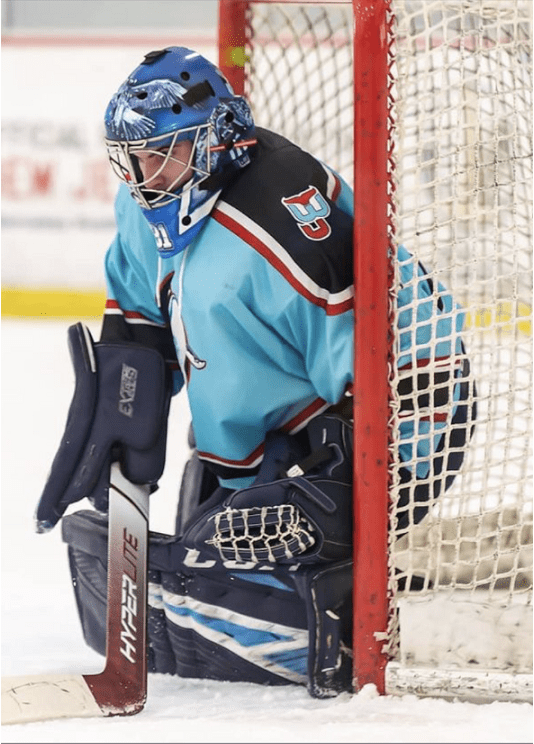
REVERSE VERTICAL HORIZONTAL (RVH)
RVH VS. VH: Take a quick glace above and notice the difference in net availability between these goaltenders (the goalie in the bottom photo is 5'11 and at top 5'8. I'll add a photo below of a 6'4 goalie so you can see the realities. All photos are taken from approximately the same distance and angle, well actually the VH photos are from further out which makes all the more impressive. Ok, hopefully I've convinced you to be more dynamic then simply defaulting to RVH all the time.
When: RVH, in it's simplest description is a butterfly at you post with a hip shift. This move is extremely effective on plays coming from behind the goalie line, plays within 1-1.5 stick lengths (depends on height of goalie), wraps, good for goalies with exceptional foot work while down who can read the play, weak angle plays below the bottom of circle when its clear the player is passing backdoor, pass-outs from within the trapezoid. See, I'm not an RVH hater!
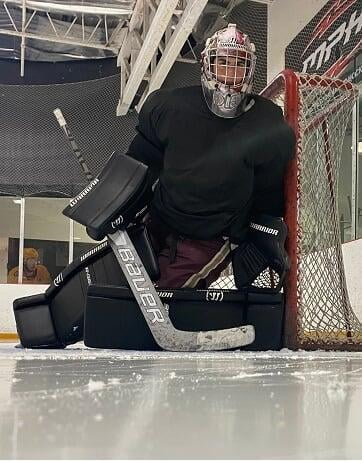
How: This isn't the ideal setup for RVH (there shouldn't be a hole over the pad and the goalie is overly rotated), in fact the setup above is ideal as the goalie is still loaded, here the goalie is set up for a high shot (a common worry of goalies in the RVH). In the above photo we can see the goalie is ready for a pass (if he was expecting a shot his shoulder would be overlapping the post), his glove is blocking the hole just over the pad. Here his glove is closed which is ok because of the pass expectation (make sure your glove is designed for that or you can be encouraging a broken hand), you probably should have it flipped open with the back of your hand pushing into the post for shots (note: a common mistake on the blocker side is to hold the blocker too high). If you still notice a hole just over your pad, odds are you need bigger pants. Ideally your toe lace (yes lace, not bungy's) is locked into the post. On a pass having your shoulder inside the post allows for an easier push off. Please note when in doubt of a shot or pass, your job is the shot!

1. Reverse VH - Blocker Side
This is the most common application of paddle down. It is very important to remember to only use this application during a wrap around attempt or if the puck is in close (within a stick length) of the net and a weak angle and the attacking players heads down.
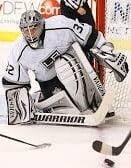
2. VH - Glove side
I truly believe (especially with smarter and/or more agile goalies) this is a more effective tool this RVH on the glove side in most instances. The reason why RVH was adopted was for stronger coverage down low. An effective paddle has better coverage and zero rebounds. The downside, it's beyond awkward and it's all about timing. Oh well, you can't have it all!
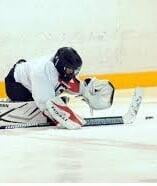
Youth Goalies- Freeze easy
Why not?!? it's a great tool for beginner goaltenders and completely eliminates those blue line dump in shots from going in. Obviously as the goalies age there isn't much use for it but it works at a young age so why not teach goalies to be resourceful and use what works. All top goalies know how to adapt so let's start early.
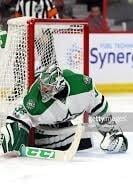
Cutting a Pass
We can all agree Kari Lethonen is going a bit extreme here completely compromising his body integrity to reach for a potential pass, none the less, the idea of cutting the pass is there. The key is actually to have your paddle 90 degrees with the goal line, let the player see a pass lane and then take it away with a flick of the wrist.

Inspiration
I resolved, contrary to my first intention, to make the being of a gigantic stature.

The Moments
I resolved, contrary to my first intention, to make the being of a gigantic stature.

Journey
I resolved, contrary to my first intention, to make the being of a gigantic stature.

Colorado
I resolved, contrary to my first intention, to make the being of a gigantic stature.

Inspiration
I resolved, contrary to my first intention, to make the being of a gigantic stature.

The Moments
I resolved, contrary to my first intention, to make the being of a gigantic stature.

Journey
I resolved, contrary to my first intention, to make the being of a gigantic stature.

Colorado
I resolved, contrary to my first intention, to make the being of a gigantic stature.
THE 15 USES OF PADDLE DOWN
1. Reverse VH on the Blocker Side:
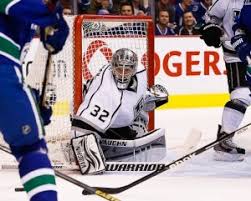
This is the most common application of paddle down. It is very important to remember to only use this application during a wrap around attempt or if the puck is in close (within a stick length) of the net and a weak angle. A very useful tip is to change the grip of you stick from 1 finger on the front to 2 fingers and tighten the grip with your thumb.
2. VH on the Glove side
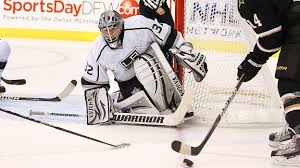
I Personally would like to see this used more frequently. I truly believe (especially with smarter and/or more agile goalies) this is a more effective tool this RVH on the glove side in most instances. The reason why RVH was adopted was for stronger coverage down low. Well an effective paddle can give just as much coverage. The slight downside could be an opening of the legs during a transition and a bit less potential use of the stick for cutting passes. The Upside would be a lot less "laziness" in the RVH position as well as a more accurate push. Ok it's not clear cut but their is definitely more usefulness in this position then is currently being used today (especially at younger levels).
3. Youth goalies as a way to prevent far shots from going in 5-hole
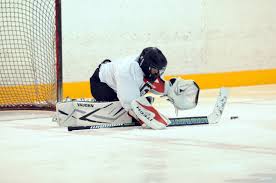
Why not?!? it's a great tool for beginner goaltenders and completely eliminates those blue line dump in shots from going in. Obviously as the goalies age there isn't much use for it but it works at a young age so why not teach goalies to be resourceful and use what works. All top goalies know how to adapt so why would I teach a 7 year old NHL technique??
4. Cut Passes from behind the net
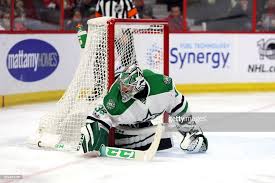
Okay, I think it's safe to say we can all agree Kari Lethonen is going a bit extreme here completely compromising his body integrity to reach for a potential pass, none the less, the idea of cutting the pass is there.
5. Blocker side cut in with no time and limited space
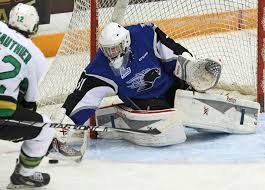
This isn't exactly the photo I'd like to show here but it gets the point across. I like the idea of the Paddle down poke (remember the grip change) by the goaltender here. You can see the attacking forward just made his way around the defenceman and the goalie is catching the forward off guard. Please note this is not a good idea if the player is not being pressured or has a lot of space to operate with.
6. Paddle Down for Rebound prevention
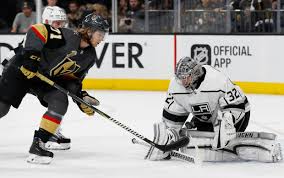
This is a VERY smart move but can only really be used on specific occasions. No one is asking you to go paddle down on a slap shot, that would be ridiculous! That being said on a slower shot when you know there's an attacking forward right there for the rebound, why not use paddle down. Too many goalies do a butterfly here and give up a soft rebound right in front so they can get scored on. Not smart my friend, not smart.
7. Paddle down on a battle
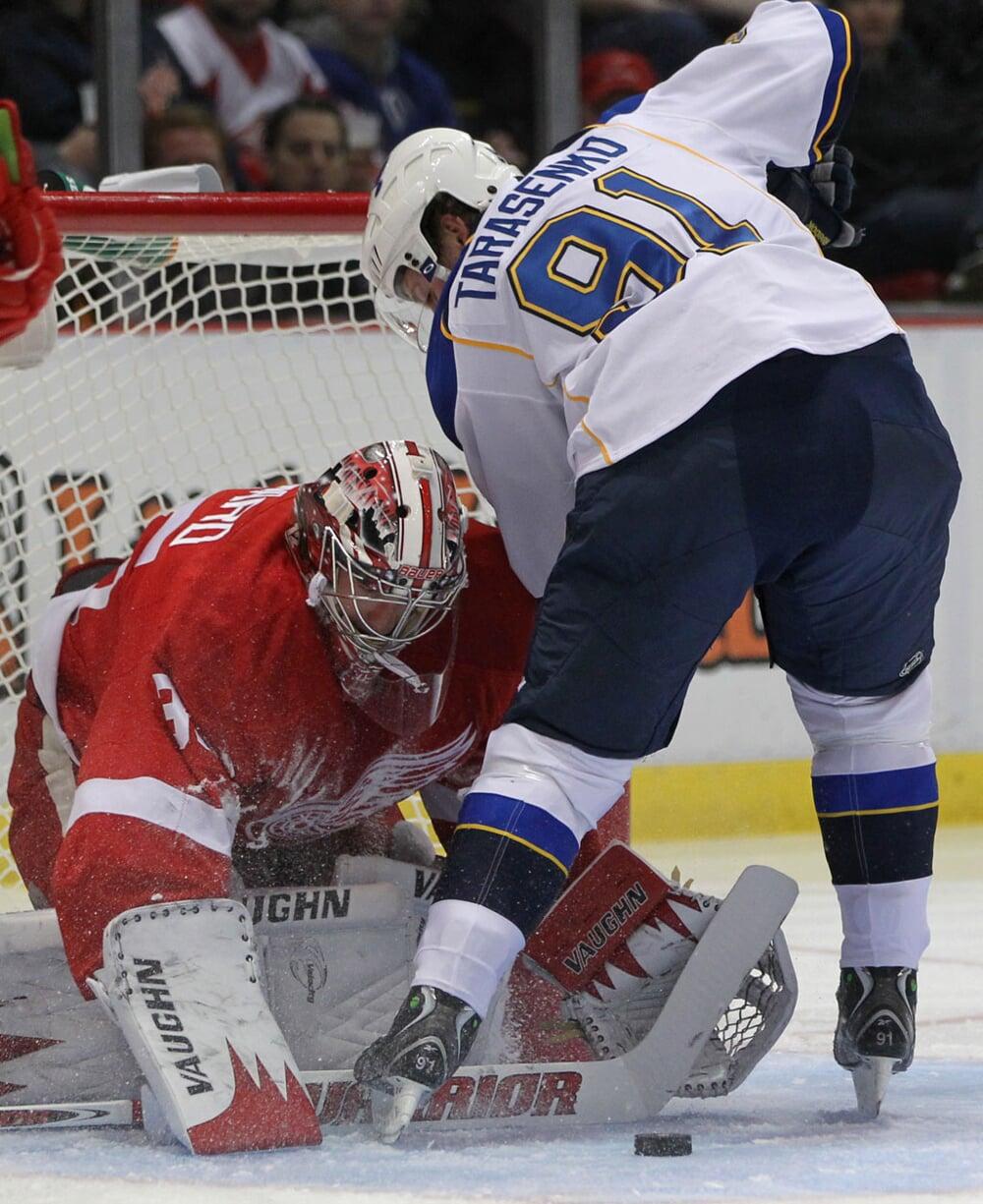
Can you tell I'm a fan of paddle down? I just don't see why you would sit back passively in a butterfly here. This move is so much stronger.
8. Paddle down during a screen
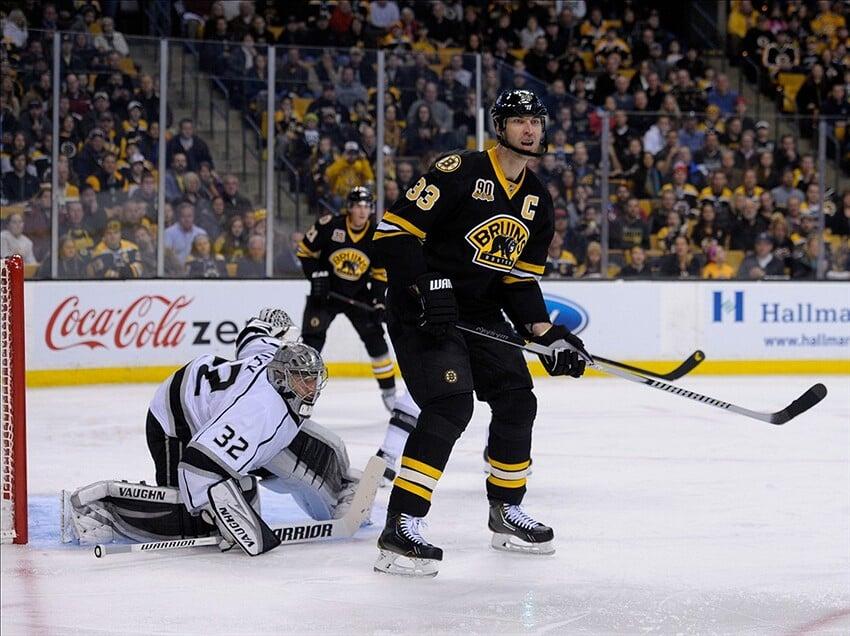
Okay agreed that Jonny Quick abuses this move a bit much. But, if you can't see the puck, it's better to find it and be slightly out of position then just hoping the puck hits you.
9. Paddle Down during a Scramble
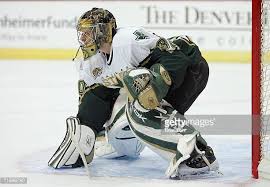
For those of you whom are less flexible, don't worry you can use this move from a down position also! A couple of quick notes here. Make sure whenever using paddle down you're A) Slightly off center favoring your blocker side a bit more. B) you practice moving out of this position back into a butterfly save C) you use your entire glove arm and not tighten up and solely use the glove.
10. Paddle Down Slide
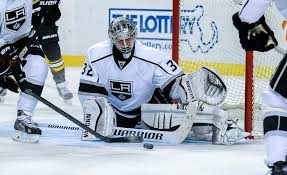
We see this slide a lot more often now as a result of using the RVH on the blocker side. It's also a good move if you're behind the play and expecting the player to shoot high, it give you more coverage on a play that you would otherwise have been beat on if staying in the butterfly.
11. Paddle down on a potential tip
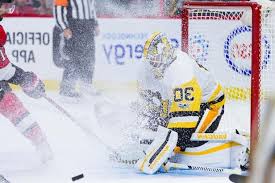
I'm not saying on any tips, but those where the puck is going slow enough where the player may touch it but may also let it go thru. Again why give up a soft rebound if you don't have too. Plus if the guy does try and pull quick, your 5-hole is already covered.
12. Paddle down on a cut in from glove to blocker side
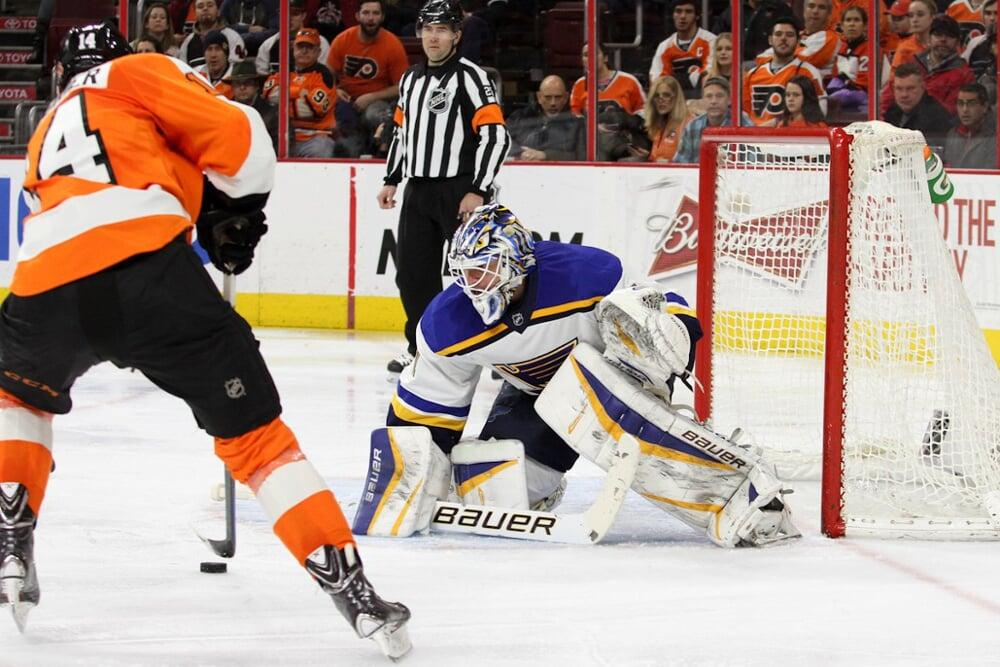
Unlike on the blocker to glove side cut in where you really have to be selective with time and space. Here you don't, well other then timing you drop (make sure the player doesn't look like he's shooting). Another great use, now with an active glove you've covered short side, there's no 5-hole when the player cuts, all that's left is far side on the cut. make sure you lift your blocker at the end and your fine, you won't be beat. ** Warning don't push off too soon or you're asking for the player to cut back.
13. Puck Play
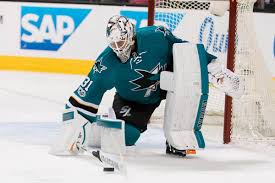
Okay I may be struggling a bit to hit 15 reasons, but they all count! This paddle down extension is a good way to gain a few extra feet when stopping a dump in.
14. Paddle Down Dive!
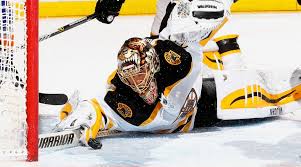
We must not forget this guy. Can you believe there's actually some technique behind this save?!? obviously a good deal of compete, but a good side note is to really try and get your stick on the outside of the post, this way when you make the save your stick paddle is strong and doesn't go into the net!
15. Just because!
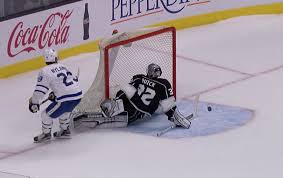
You caught me, this isn't a real reason, but what the heck eh? This use just goes to show you've got to enjoy yourself while playing. If you do you'll be willing to put in all the extra time becoming a professional athlete really entails. You'll want to figure things out on your own, you'll ask questions, come to training sessions prepared, visualize after your sessions, take notes etc.. the list goes on and on.
Three Important Concepts for Beginners: Depth, Centered, Square
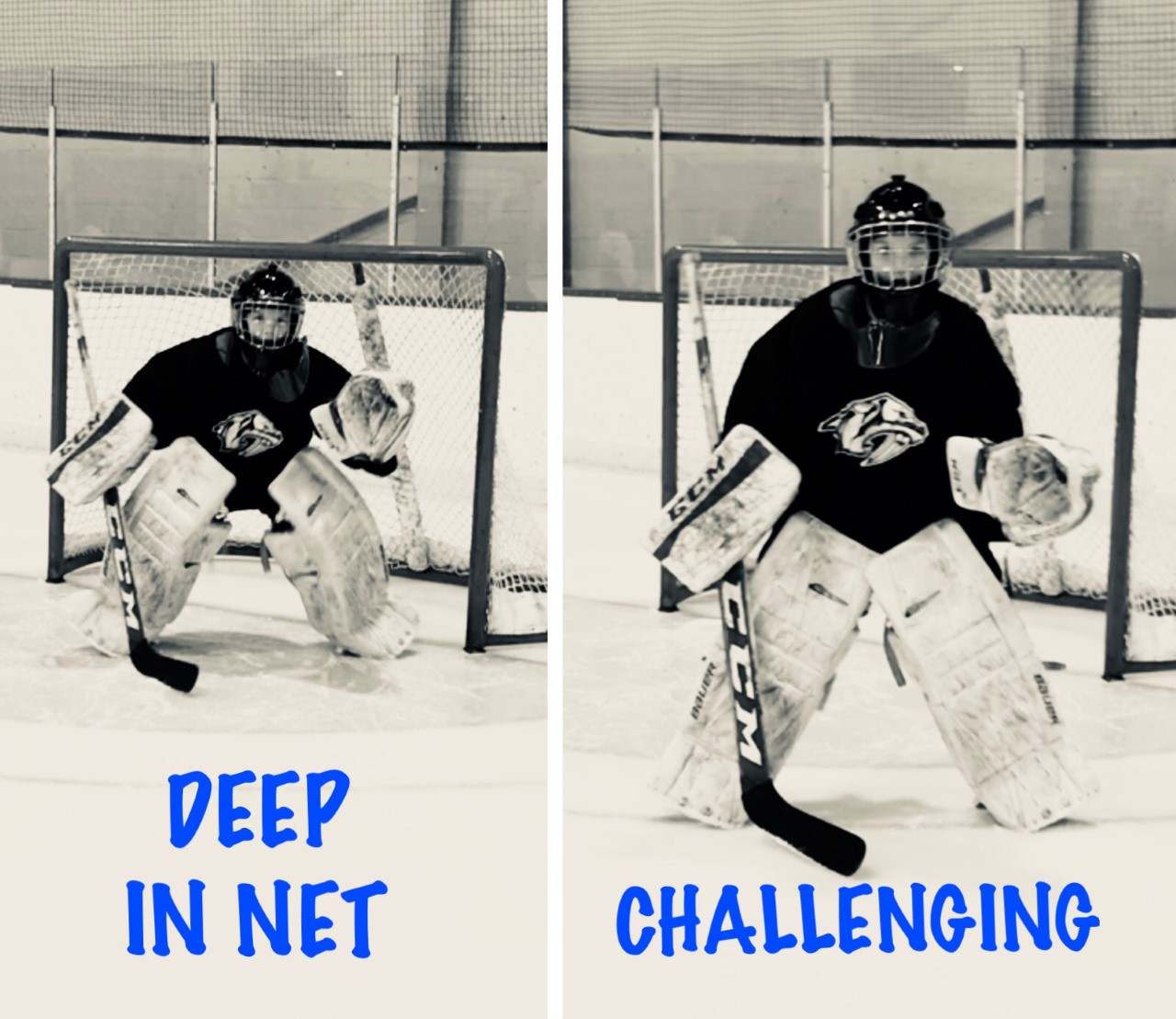
DEPTH
While other coaches will disagree with me, I believe at a young age Depth should be a priority over angles and Centered. Obviously a goalie who isn't centered and Square won't be making very many saves... I'm definitely not saying to ignore these topics but I feel with time it's easier to learn those and harder to learn to challenge. My reasoning is goalies who challenge learn confidence in themselves and often learn their net better then those whom are taught to be centered and square first. Again, all within reason.
SQUARE
Goalie 1 is clearly deep in his net and not centered or square. Goalie 2 has added depth and is centered but if you look closely you can see something is off. His body is actually rotated as you can tell by the right side of his body looking smaller then the left. Goalie 3 has nailed it! while barely 4'6'' tall, he has basically sealed the entire net due to the proximity of the puck, having added depth, being centered and square.
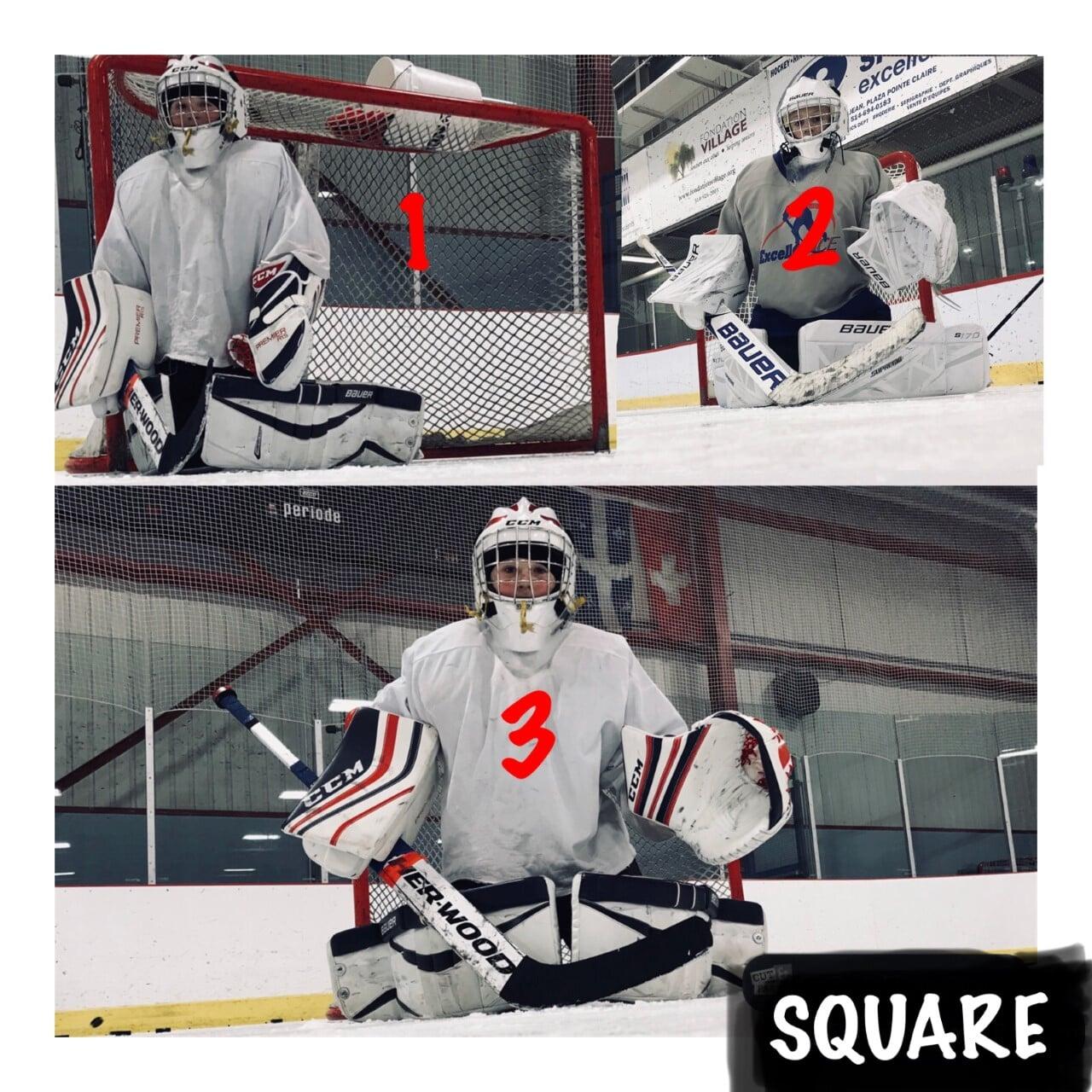
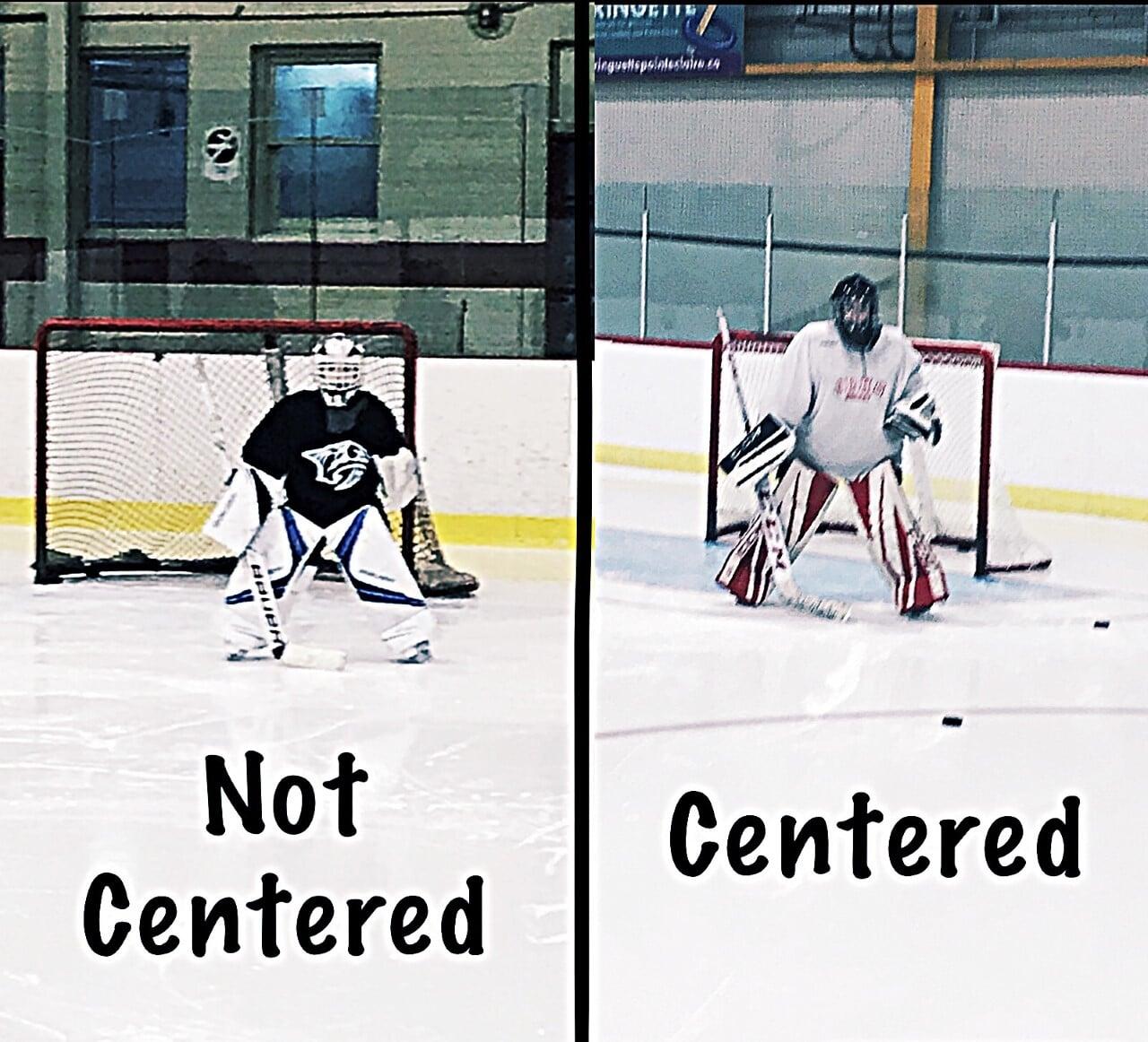
CENTERED
Of the 3 concepts this one may take the longest to learn. While advanced goalies need not always be square (varies on situations), they need to be centered as much as possible at all times. As you can see the goalie on the left has a disproportionate amount of net available on either side of him. Goalie on the right is a little off center but you get the point. This becomes more difficult to do as the puck changes angles and location in the zone.
ALL THINGS EQUIPMENT
| HOW TO GET DRESSED | COST, EQUIPMENT RENTAL | OTHER FUN THINGS |
| FITTING EQUIPMENT | BREAKING IN YOUR GLOVE | TRAINING TOOLS |
| USED EQUIPMENT | BRANDS AVAILABLE | ADDITIONAL PROTECTION |
How to get dressed
Below is a video on how to get dressed from top to bottom. I've taken the time to describe a couple of key points as you watch the video.
- First and foremost avoid the temptation our using the damm toe ties (bungy cord type material). While simpler it's A LOT HARDER for your child to learn how to push properly.
- All the extra lace give before even tying the pad (this guys twists the lace you should do several knots so as to not redo it every time).
- Very important! The once he starts going around the skate he loops back thru the first eyelet of the skate. This way the lace won’t loosen and fall under the goalies skate.
- Make sure to do a minimum of a double knot once you finally tie the lace on top of the skate. My experience would recommend 3 or more.
- See how he starts on the strap that goes around the calf. This isn’t so important but what is important is that this strap is the only tight one on the pad. To often youth parents tie every strap ultra tight. DON’T!! kids need to be able to bend their knees and ankles a lot, thus need a lot of give. On most pads you should tie this strap tighter then the goalie in this video does.
- NOTE: the strap he ties under the pad is essentially useless. I would recommend tying it around the back of the skate, relatively loose.
SIZING AND FITTING OF EQUIPMENT
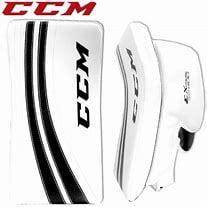
BLOCKER
- Youth( General rule 5-6yrs old), Junior( 7-9 yrs), Intermediate( 10-13 yrs), Senior( 13+)
- Aim to have less then 1/4 inch (less then 1cm) space between tip of finger and glove
- For a video with more detail click here

- Youth( General rule 5-6yrs old), Junior( 7-9 yrs), Intermediate( 10-13 yrs), Senior( 13+)
- Aim to have less then 1/4 inch (less then 1cm) space between tip of finger and glove
- For a video with more detail click here
- Youth( General rule 5-6yrs old), Junior( 7-9 yrs), Intermediate( 10-13 yrs), Senior( 13+)
- Aim to have less then 1/4 inch (less then 1cm) space between tip of finger and glove
- For a video with more detail click here
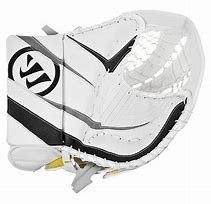
GLOVE
- Glove to be worn on catching hand
- Youth( General rule 5-6yrs old), Junior( 7-9 yrs), Intermediate( 10-13 yrs), Senior( 13+)
- Aim to have less then 1/2 inch (less then 1cm) space between tip of finger and glove
- For a video with more details click here

- Glove to be worn on catchinghand
- Youth( General rule 5-6yrs old), Junior( 7-9 yrs), Intermediate( 10-13 yrs), Senior( 13+)
- Aim to have less then 1/2 inch (less then 1cm) space between tip of finger and glove
- For a video with more details click here
- Glove to be worn on catchinghand
- Youth( General rule 5-6yrs old), Junior( 7-9 yrs), Intermediate( 10-13 yrs), Senior( 13+)
- Aim to have less then 1/2 inch (less then 1cm) space between tip of finger and glove
- For a video with more details click here
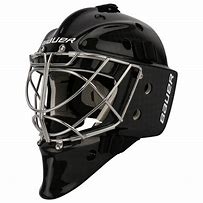
HELMET
- No need to buy a goalie helmet immediately. Generally at a young age goalies will benefit with better vision out of player helmets.
- Chin needs to be snug against chin rest
- 1 finger gap of forehead in sight before over eyebrow
- For a video with more details click here

- No need to buy a goalie helmet immediately. Generally at a young age goalies will benefit with better vision out of player helmets.
- Chin needs to be snug against chin rest
- 1 finger gap of forehead in sight before over eyebrow
- For a video with more details click here
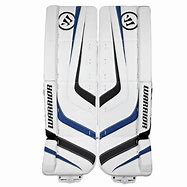
PADS
- Easiest way to check is if the middle of the goalie's knee fits in the middle of the knee cradle.
- To have the pads last a bit longer they can be an inch under the middle, but no more. Resist from getting "plus sizes" and bigger pads until Bantam. Imagine walking around in a snow suit, it's annoying, now imagine
- For a video with more details click here , fast forward to 1:40

- Easiest way to check is if the middle of the goalie's knee fits in the middle of the knee cradle.
- To have the pads last a bit longer they can be an inch under the middle, but no more. Resist from getting "plus sizes" and bigger pads until Bantam. Imagine walking around in a snow suit, it's annoying, now imagine
- For a video with more details click here , fast forward to 1:40
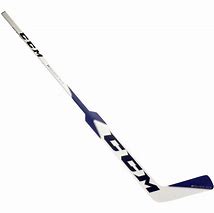
STICK
- Most Commonly miss sized piece of equipment. Often way to tall. Keep in mind some 6ft+ goalies use only 25 inch paddles
- The goalies stick SHOULD NOT be flat on the ice unless he is in his wide bent stance. i.e feet at least twice shoulder width and bent.
- In his "tall stance", feet slightly more apart then shoulder with, it's sufficient to have only the toe of the stick on the ice.
- The right size stick is essential for better 5-hole coverage in butterfly, deflecting pucks and having an active stick.
- The video is pretty good but I like to first stick, the goalie should bend his knees/ankles more. Click Here

- Most Commonly miss sized piece of equipment. Often way to tall. Keep in mind some 6ft+ goalies use only 25 inch paddles
- The goalies stick SHOULD NOT be flat on the ice unless he is in his wide bent stance. i.e feet at least twice shoulder width and bent.
- In his "tall stance", feet slightly more apart then shoulder with, it's sufficient to have only the toe of the stick on the ice.
- The right size stick is essential for better 5-hole coverage in butterfly, deflecting pucks and having an active stick.
- The video is pretty good but I like to first stick, the goalie should bend his knees/ankles more. Click Here
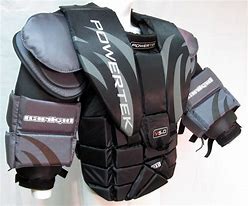
CHEST PROTECTOR
- Bottom of chest pad should not hang below belt line, it will impair mobility.
- Elbow should align in elbow cup, Similarly shoulder should align in should cap.
- Don't buy big bulky chest pads until at least peewee. Learning to move and tracking rebounds takes precedence.
- For a video with more details, click here.

- Bottom of chest pad should not hang below belt line, it willimpair mobility.
- Elbow should align in elbow cup, Similarly shoulder should align in should cap.
- Don't buy big bulky chest pads until at least peewee. Learning to move and tracking rebounds takes precedence.
- For a video with more details, click here.
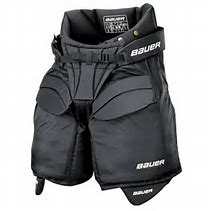
PANTS
- Goalie pants aren't necessary at a young age, the shots aren't hard enough unless playing a top caliber.
- Generally goalie pants provide extra protection inside the thigh and have thicker padding.
- In atom goalies should get there first pair and starting in Bantam they should look at over-sizes.
- For a video with more details click here

- Goalie pants aren't necessary ata young age, the shots aren't hard enough unless playing a top caliber.
- Generally goalie pants provide extra protection inside the thigh and have thicker padding.
- In atom goalies should get there first pair and starting in Bantam they should look at over-sizes.
- For a video with more details click here
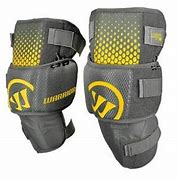
KNEE PADS
- There is nothing glamorous about this piece of equipment but it is NECESSARY!
- Your child will detest getting used to them so the sooner the better, pucks off the knees hurt, a lot!
- I strongly encourage to buy this model, they are a bit bulkier then others but stay in position longer. The biggest issue is the Velcro
- For more details click here

- There is nothing glamorous about this piece of equipment but it is NECESSARY!
- Your child will detest getting used to them so the sooner the better, pucks off the knees hurt, a lot!
- I strongly encourage to buy this model, they are a bit bulkier then others but stay in position longer. The biggest issue is the Velcro
- For more details click here
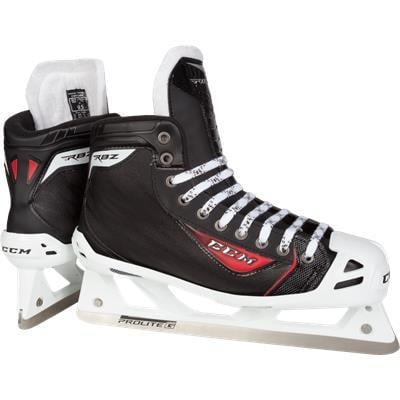
SKATES
- Before rushing off and getting your child his/her first pair of goalie skates, WAIT! Sure it's easier for them to stand in goalie skates and stay balanced but long term it will help both their skating and edges if they learn how to skate on player skates.
- Note that not all goalie skates have cowlings ("the white part") anymore.
- recommended to have max 1 finger gap between heel and back of skate.
- For a brief video click here

- Before rushing off and getting your child his/her first pair of goalie skates, WAIT! Sure it's easier for them to stand in goalie skates and stay balanced but long term it will help both their skating and edges if they learn how to skate on player skates.
- Note that not all goalie skates have cowlings ("the white part") anymore.
- recommended to have max 1 finger gap between heel and back of skate.
- For a brief video click here
Cost of Equipment
One of the biggest fears of parents in the "myth" that the cost of goalie equipment will force them to take out a new mortgage. Well I've got good news for you, it doesn't have to be that way!
There are a few options to consider before going out and spending your child's college tuition funds on goalie equipment
- Ask your association if they rent goalie equipment out.
- Look on kijiji, facebook market or varage sale. Often other sell the equipment they've recently purchased due to a quick growth spurt or poor fit. Youth goalie equipment is good for a good 3 years, rarely do kid stay in the same set for more then 1-2 years.
- In Quebec there's a sport chain, Sports Aux Puces that allows you to rent gear for the season. I've link to Laval store here.
- Again in Montreal and surrounding areas there's Play It Again Sports which has a variety of slightly used equipment.
Fun things to do with goalie equipment
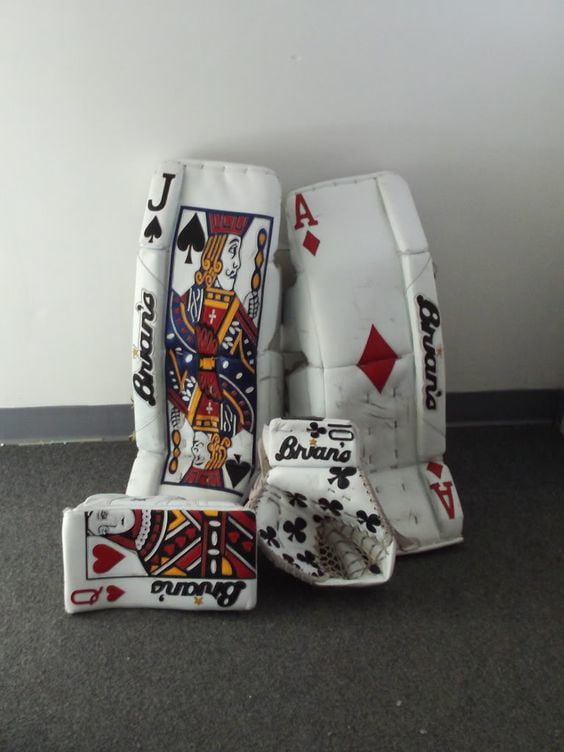
- Get your helmet painted, or even cheaper www.custom-cages.com
- Customize the design on your pads @ Padskinz
- Customize your gear in general, size, color, specs Bauer , CCM , Warrior ,
- Various off-ice training tools for all ages (a lot of gimmicks but could be fun!)
- Synthetic ice Tiles and boards
- Goalie Band to work on angles

